Foodwise
Winter
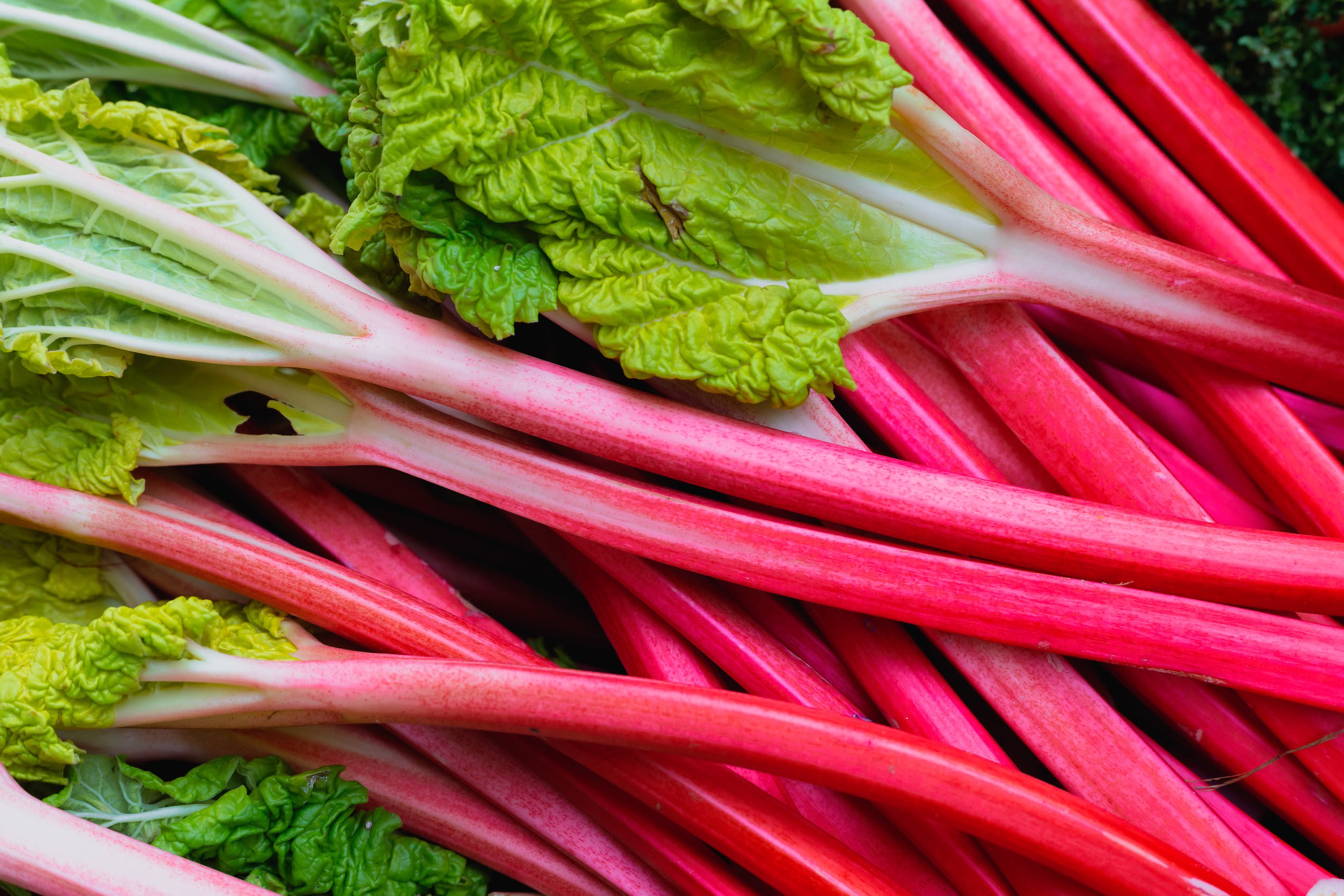
Welcome to edition #64 of Foodwise
The weather may be cooling but there’s no slowing down as we enter the second half of 2023.
Our free online food handler training was launched this week to help businesses meet new requirements under Standard 3.2.2A when they come into effect later this year. It’s just one of our new business resources – you’ll also find a helpful quiz, frequently asked questions, and printable poster on our website.
We extended a warm welcome to our new Minister, The Hon. Tara Moriarty MLC, who was sworn in as the Minister for Agriculture, Minister for Regional NSW and Minister for Western NSW, in April.
We were delighted Minister Moriarty was among the first visitors to our stand at the Sydney Royal Easter Show. The stand highlighted the importance of good hand hygiene – and picked up a coveted award to boot.
We hope you find the resources in this edition useful. If there’s something you’d like to see, we always welcome your feedback. Drop us a line at food.contact@dpi.nsw.gov.au or phone 1300 552 406.
A ‘glowing’ success at the Easter Show
The Food Authority's Hand Washing stand had 12 amazing days at the Sydney Royal Easter Show.
As in previous years, the hand washing activity continued to impress with approximately 50,000 people putting their hand washing skills to the UV test and giving Food Authority staff some truly "luminous" feedback.

UV test for hand washing.
UV test for hand washing.
The stand was a huge success in demonstrating how effective the hand washing habits of our visitors were, and in promoting our message that washing hands well and food safety go hand in hand.
The interactive and educational activity was designed to teach kids (and adults) about proper hand washing technique in a fun and engaging way – and it’s fair to say, it did just that.
How well do you wash your hands?
How well do you wash your hands?
Not only did we see many hand washing success stories, but the combined Department of Primary Industries exhibit stands – NSW Food Authority ‘Hand Washing’ and NSW DPI Fisheries ‘Fish on Show’ stands were also awarded Silver in the ‘Commercial Exhibitors award – around the grounds’ category.
While only being sworn in as the new Minister for Agriculture, Regional NSW and Western NSW the day before, the Hon Tara Moriarty, MLC wasted no time in getting to the Easter Show to visit our stand. It was great to meet our new Minister and promote the importance of effective hand washing to help reduce food poisoning.
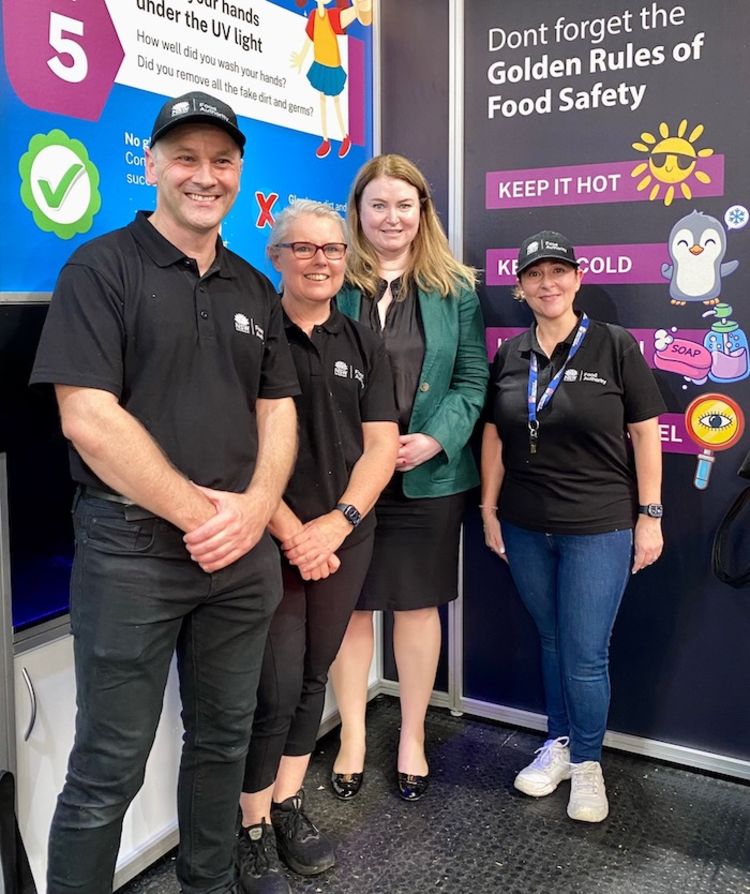
Minister Moriarty at the Food Authority Hand Washing stand with Food Authority staff.
Minister Moriarty at the Food Authority Hand Washing stand with Food Authority staff.
If you visited the stand at the Show this year, we would love to hear from you, feel free to drop us a line at food.contact@dpi.nsw.gov.au.
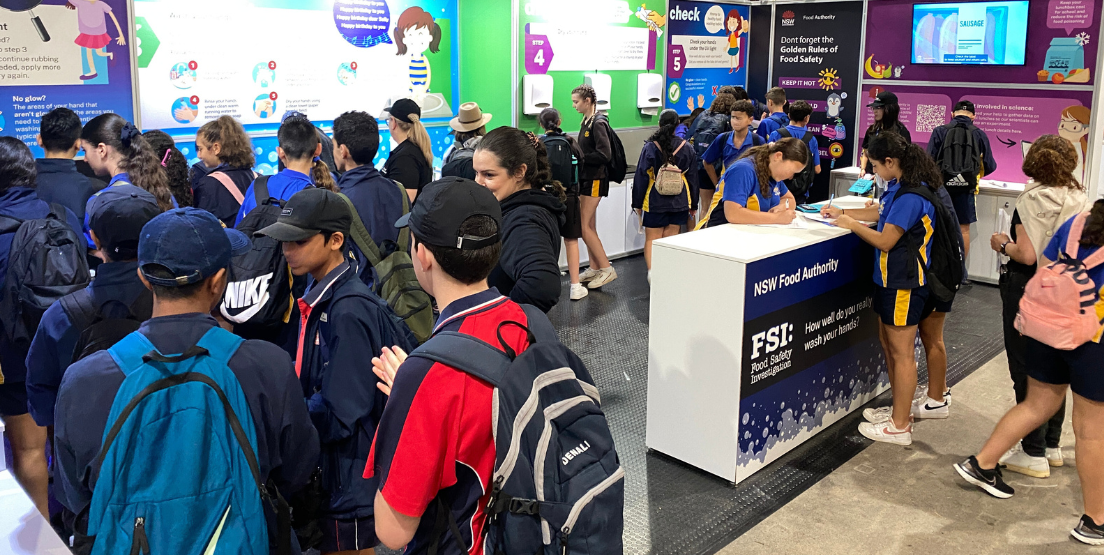
Food Safety Research – Lunch Box Experiment Survey
With the large and engaging crowds at the Easter Show, we took the opportunity to launch our Lunch Box survey as part of our stand activity.
How to best keep safe the lunches that children take to school is an important question.
Food poisoning is never fun, and there is a risk of getting sick if lunches aren’t kept at safe temperatures.
It’s been a while since our food scientists last did an experiment to see how safe school lunches are, and with many new food and food storage options, they’re keen to do it again.
The bugs that cause food poisoning grow quickly between 5°C and 60°C. Keeping food cool at school is key to reducing the risk of getting sick.
You can help us by:
- taking a minute to answer a few simple questions in an online survey about your children’s school lunch and how it’s stored, and by
- Sharing the survey with your family, friends and on social media.
We’ll use the data from the survey to test how warm your lunches get, and our scientists will send the samples to the lab for testing.
The survey is quick and anonymous – and closes on 30 June 2023.
You can take the lunch box survey by answering the questions directly in the screen below, or you can complete it by clicking on the survey link here – don’t forget to share it!
To find out the results, keep an eye on NSW Food Authority > Lunch boxes
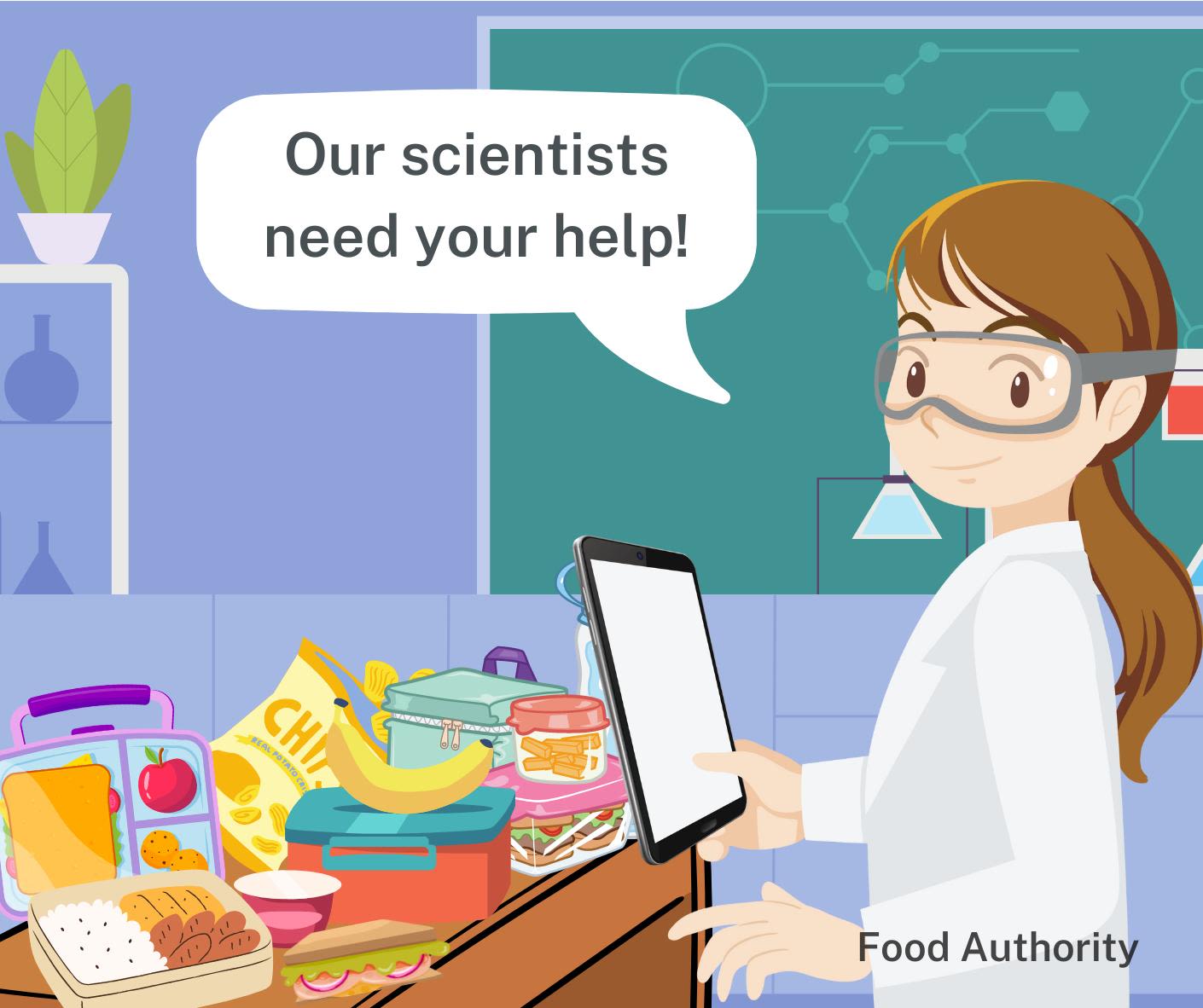
Quality win for a quality Sydney Rock Oyster
Proving they still know how to rock a Sydney Rock Oyster, Tathra Oysters were again named winners of the NSW Food Authority perpetual trophy for Champion Sydney Rock Oyster for their Nelson Lake Premium Bag exhibit in the 2023 Sydney Royal Fine Food Show, Aquaculture competition.
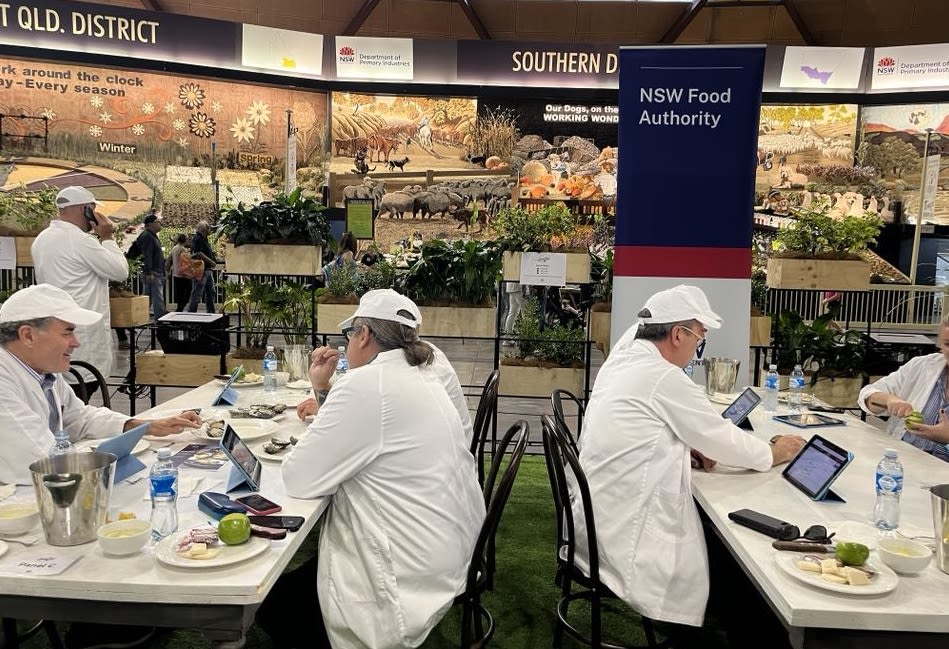
Champion Sydney Rock Oyster judging.
Champion Sydney Rock Oyster judging.
The win is Tathra Oyster's thirteenth win of the coveted Champion Sydney Royal Rock Oyster title since 2004.
Established officially in 2001 as the Sydney Royal Aquaculture competition, the NSW Food Authority is a proud sponsor of the event which recognises and celebrates excellence and aims to support a viable and prosperous future for our agricultural communities.
Congratulations Tathra Oysters!
To view all the results and see who took home the top prizes, see the Sydney Royal Fine Food Show Aquaculture – Catalogue.

Champion Sydney Rock Oyster awarded to Tathra Oysters.
Champion Sydney Rock Oyster awarded to Tathra Oysters.
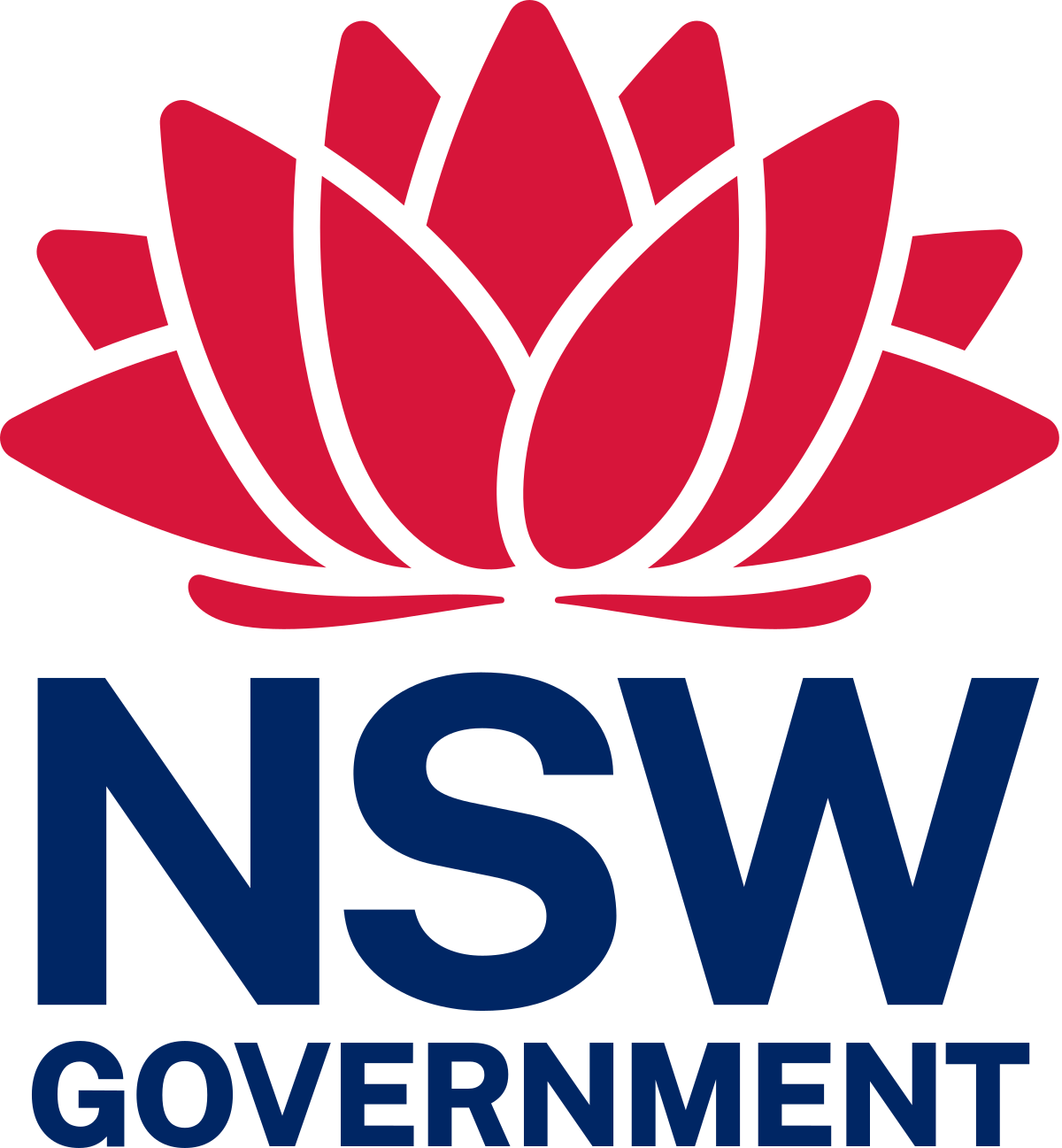
Staged Repeal of Food Regulation 2015
The Food Authority intends to remake the Food Regulation by early 2024 to ensure the regulation remains contemporary and fit for purpose. Amendments are proposed for the new regulation, for example including businesses impacted by new Standards in the Food Standards Code.
The draft regulation and Regulatory Impact Statement (RIS) will be available for public consultation for 4 weeks later in 2023.
We will directly advise all stakeholder groups, Government agencies and industry sectors covered by the Regulation, including Local Government once the draft regulation and RIS are available for comment.
New requirements for food service businesses
Food service businesses, including cafes, restaurants, caterers and food-related retail, should start preparing for new food safety requirements under Standard 3.2.2.A.
From 8 December 2023, all businesses that process unpackaged food requiring temperature control, and serve it ready-to-eat, must implement 2 or 3 of the following tools, depending on their food handling activities:
- have a qualified onsite Food Safety Supervisor
- ensure all food handlers are trained in food safety and hygiene, and
- be able to show their food is safe.
The Standard applies to a range of outlets that were previously exempt, including not-for-profits, school canteens and childcare services.
The new Standard does not apply to businesses that have a NSW Food Authority licence. This is because licensed businesses must meet the requirements of Standard 3.2.1 Food Safety Programs, which match or exceed those in Standard 3.2.2A. The existing food safety management program, which is a requirement of the licence, should outline controls that effectively control food safety hazards for the business.
For more information see Standard 3.2.2A – Frequently asked questions

Free food handler training now available
The Food Authority has launched a free online Food Handler Basics learning module to help businesses meet their training obligations under Standard 3.2.2A.
The interactive short course covers basic food handler knowledge requirements, including the safe handling of food, contamination, cleaning and sanitising and personal hygiene.
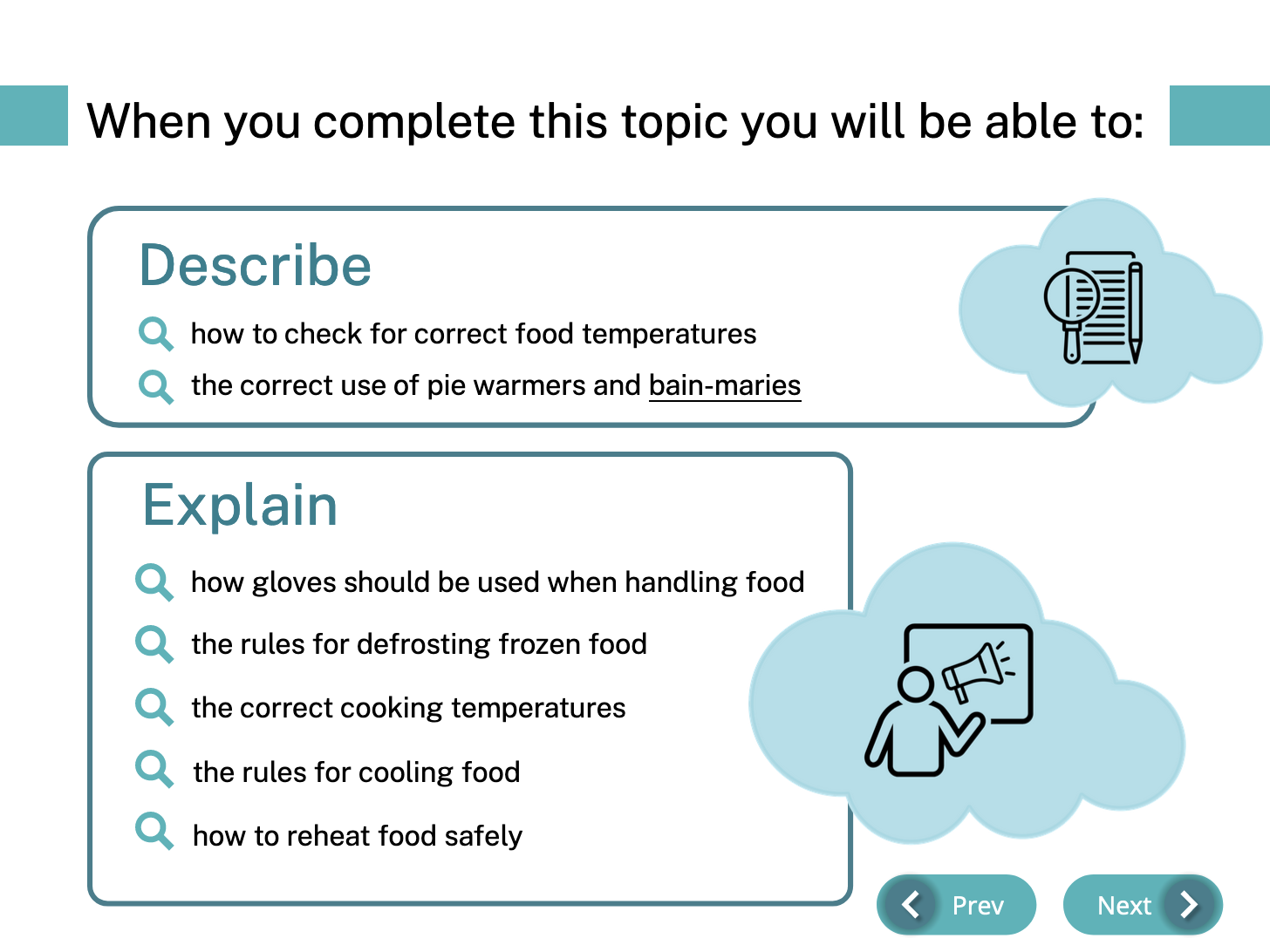
A slide from the Food Handler Basics online training.
A slide from the Food Handler Basics online training.
It is not the same as Food Safety Supervisor training, which is delivered by certified registered training organisations.
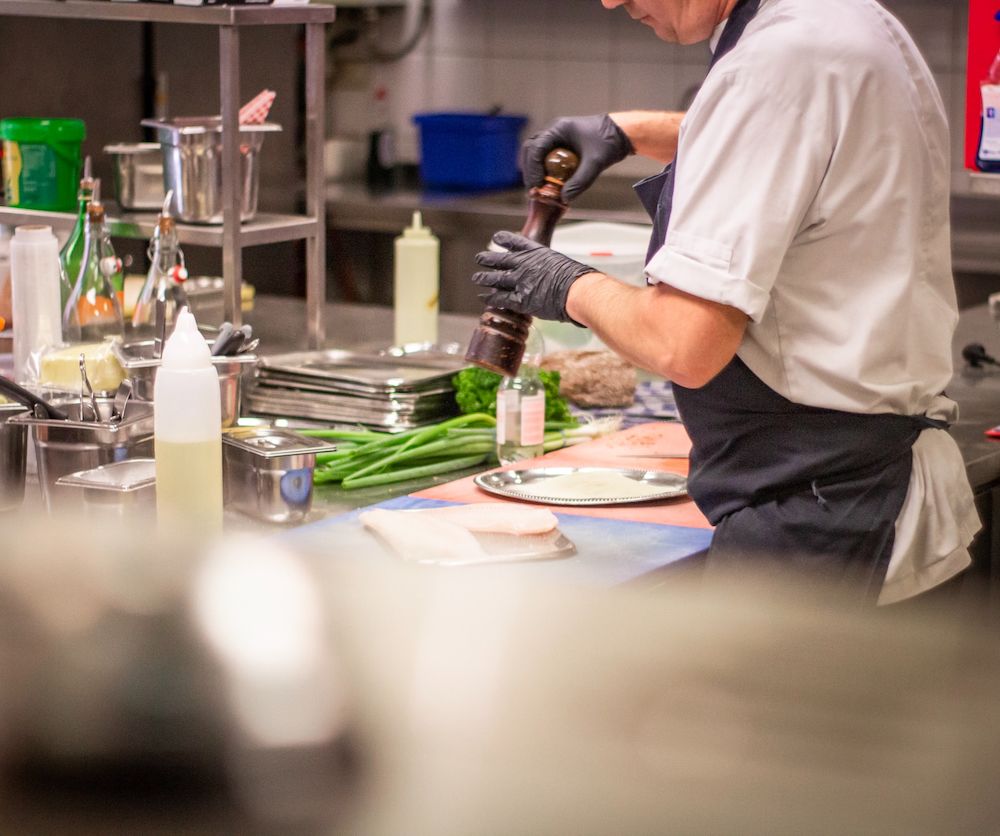
Managing Food Allergen Risk
Food allergies can be life threatening, which is why systems are in place to protect allergic consumers from food allergens.
Managing food allergen risk involves everyone in the food chain, from food suppliers to food retailers, and consumers.
To find out more about how we work together and your responsibilities to minimise food allergen risk, read Managing Food Allergen Risk.
Managing Food Allergen Risk
Managing Food Allergen Risk
Flood grants closing soon
Widespread flooding in 2022 triggered Government support packages for primary producers.
Applications are closing soon for Special Disaster Grants of up to $75,000 for primary producers who were impacted by the storm and flooding events.
Applications for the Critical Producer Grants are open until 30 September 2023.
For further assistance contact DPI Rural Recovery Support Services.
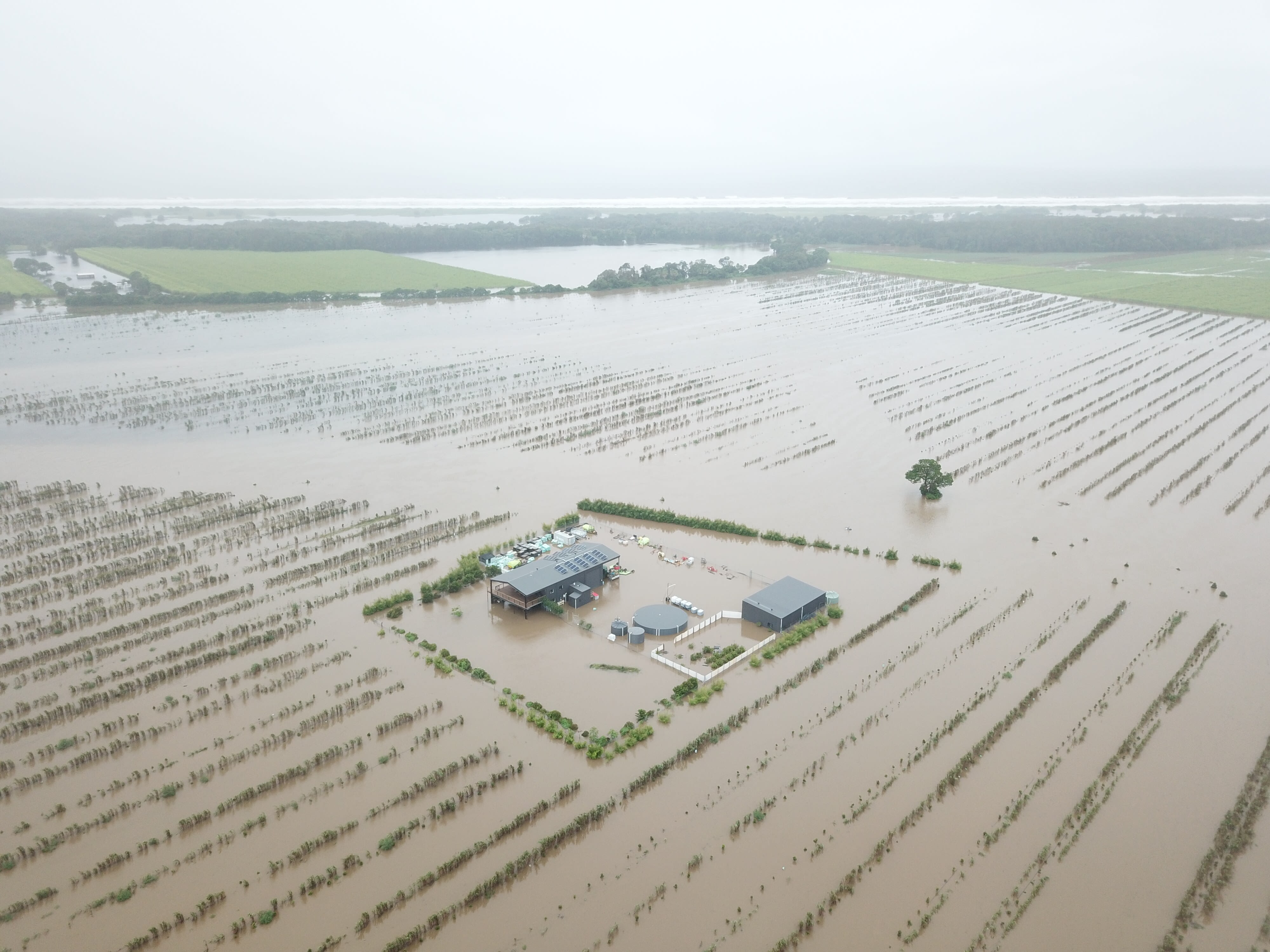
RETAIL
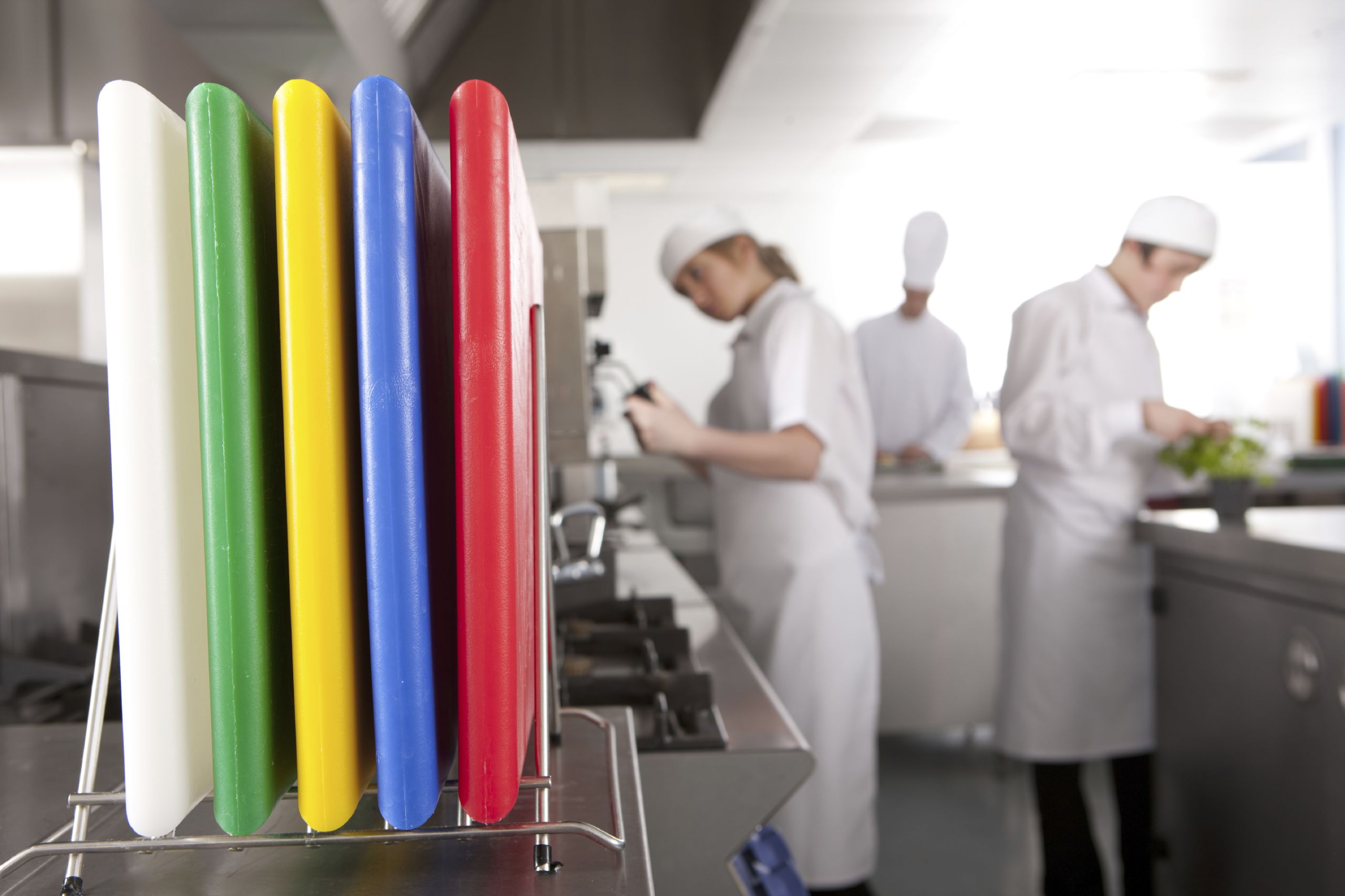
Food Regulation Partnership Workshop attracts 200 delegates
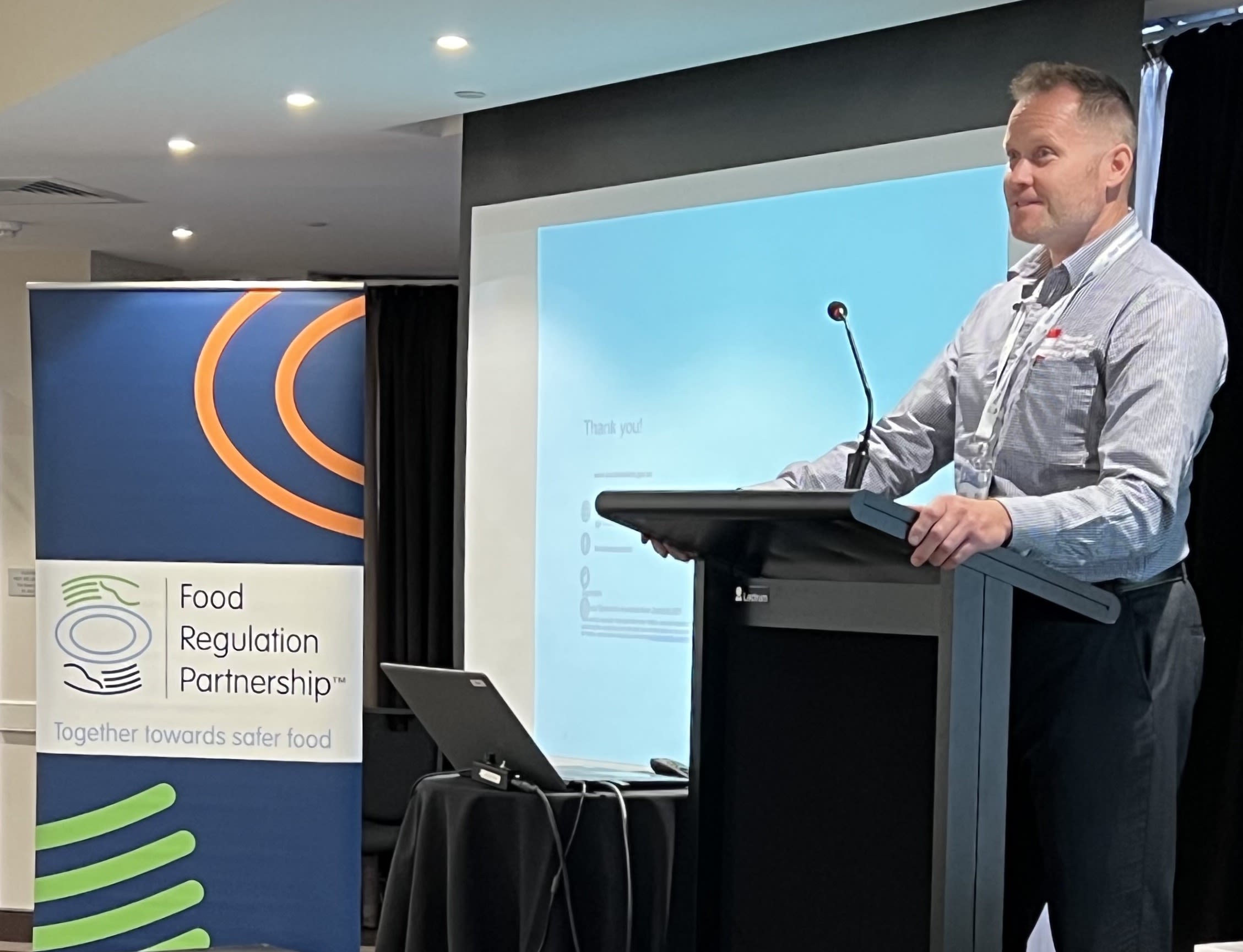
Andrew Davies, Manager of the Local Government Unit .
Andrew Davies, Manager of the Local Government Unit .
The NSW Food Authority hosted more than 200 delegates at its biennial Food Regulation Partnership (FRP) Workshop from 26-28 April in Sydney.
With a theme of ‘Building resilience and working together’, the workshop brought together authorised officers to learn about the latest food safety information, showcase the extraordinary food surveillance work of local councils, facilitate discussion, and provide networking opportunities for EHOs.
The first engaging session demonstrated the benefits of collaboration during foodborne illness investigations. Food Standards Australia provided updates on the review of the Food Standards Code, and the Food Authority showcased its new online Authorised Officer training package for local government.
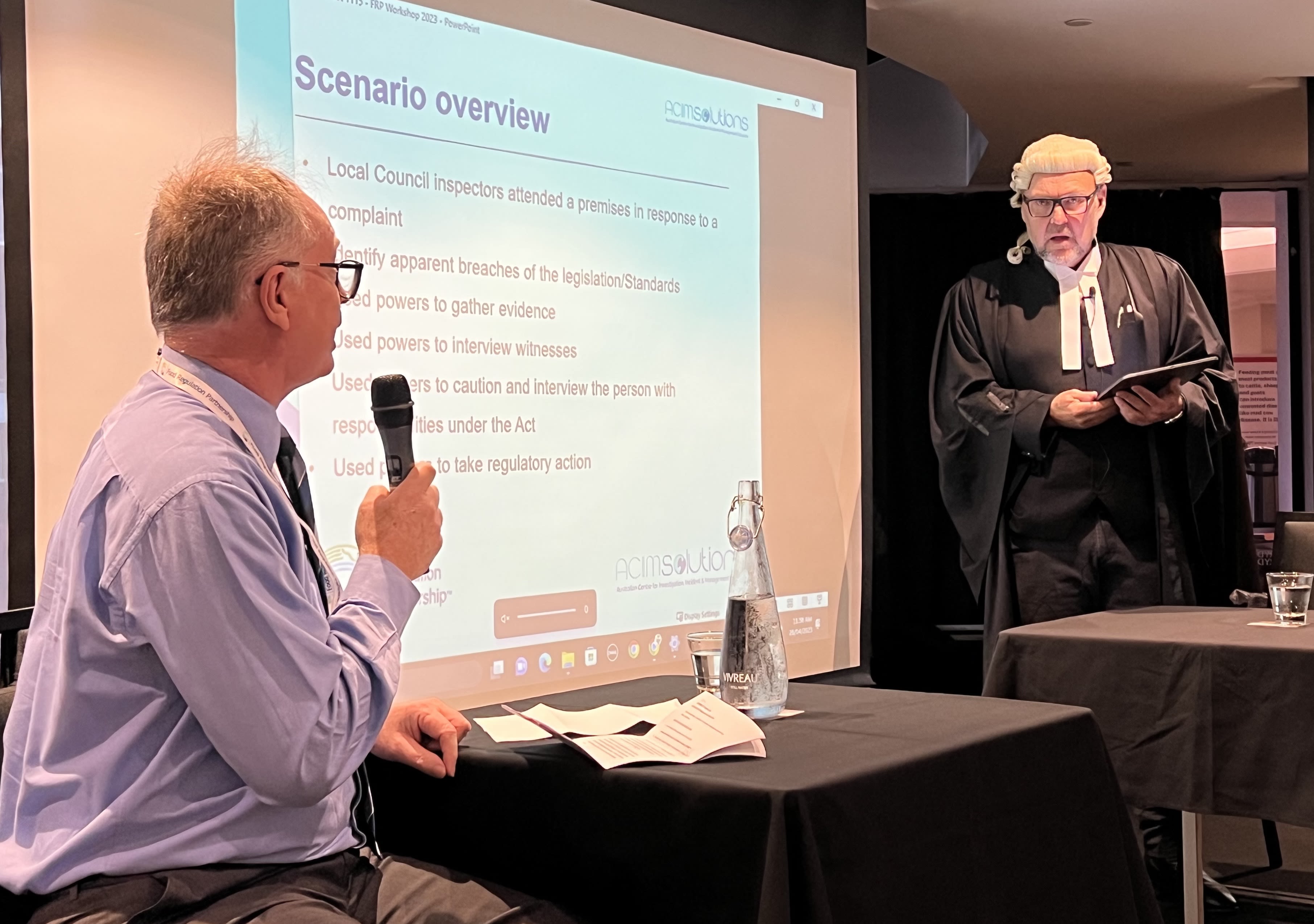
Former NSW Food Authority investigator Ian Beer demonstrating best practice on delivering evidence in a mock court situation.
Former NSW Food Authority investigator Ian Beer demonstrating best practice on delivering evidence in a mock court situation.
An official welcome from Department of Regional NSW Secretary Rebecca Fox was followed by a panel discussion on ‘Resilience under Adversity’, highlighting the NSW mice plague, City of Sydney Council’s proactive rodent program, and successive responses to environmental disasters.
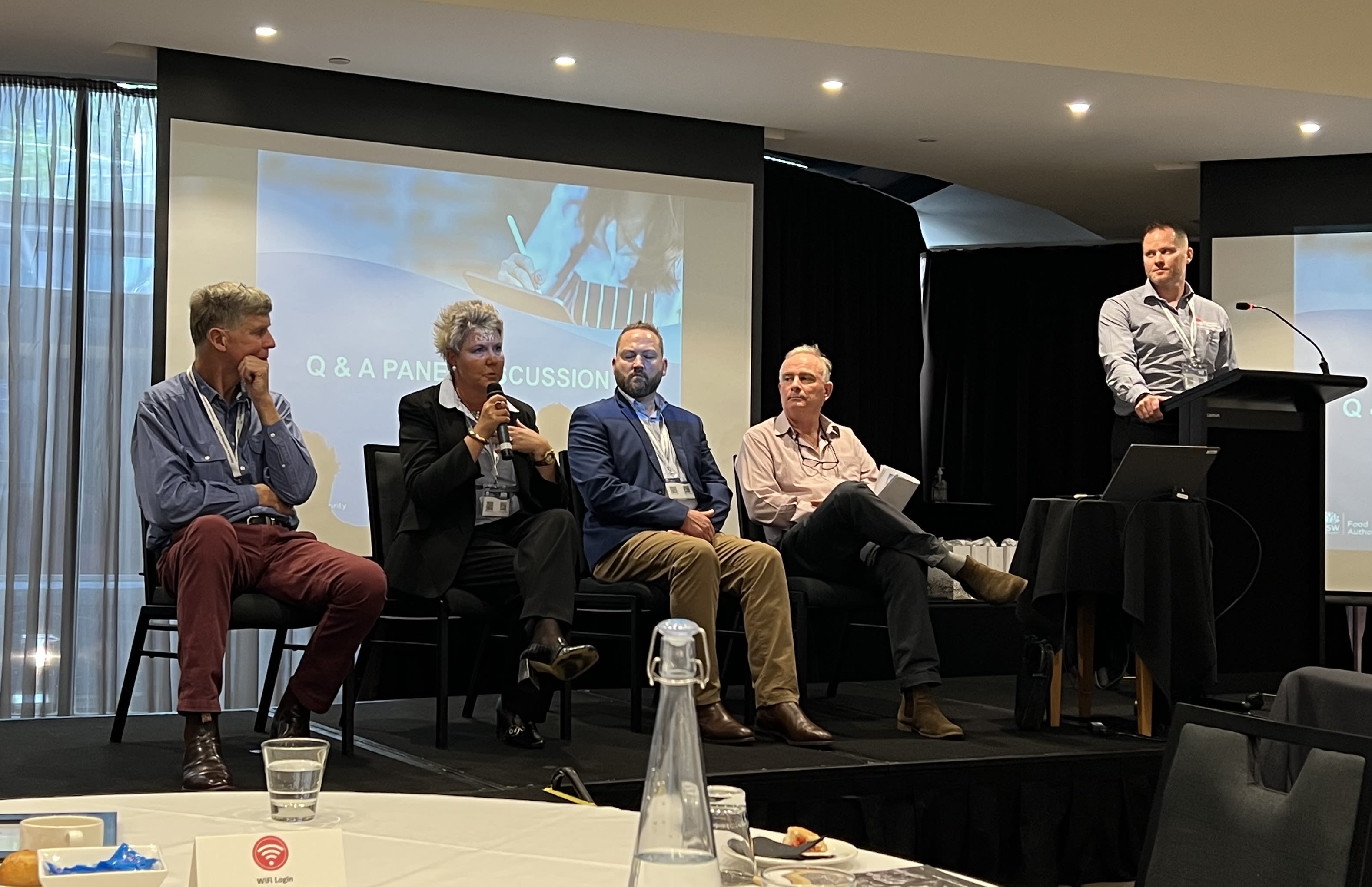
A panel of speakers answering further questions from attendees on their 'resilience under adversity' experiences.
A panel of speakers answering further questions from attendees on their 'resilience under adversity' experiences.
Delegates also heard presentations on one council’s food distribution program for at-risk communities, regulatory considerations for wet storage of shellfish in retail, and on providing safe water during floods.
Day one finished with speed networking that provided opportunities to see new and interesting foods, discuss the authorised officer shortage and learn how the Food Authority helps food businesses achieve food safety using new techniques.
A high point of day one was the FRP Food Surveillance Champion Awards, presented by Chair Food Regulation Forum Paul Braybrooks OAM, to:
- Group City – Georges River Council and Inner West Council
- Group Country – Environmental Development and Allied Professionals (EDAP)
- Individual Country – Vanessa Johns from Griffith City Council
Congratulations to the winners from an outstanding field of entrants.
Day two kicked off with a session on building personal resilience followed by a presentation on the Food Authority’s labelling and education tools. An event highlight was a pragmatic mock court session on how to ‘navigate the legal labyrinth’, which gave practical insights on gathering evidence and the court process in food safety matters.
The next FRP Workshop will be held in 2025.
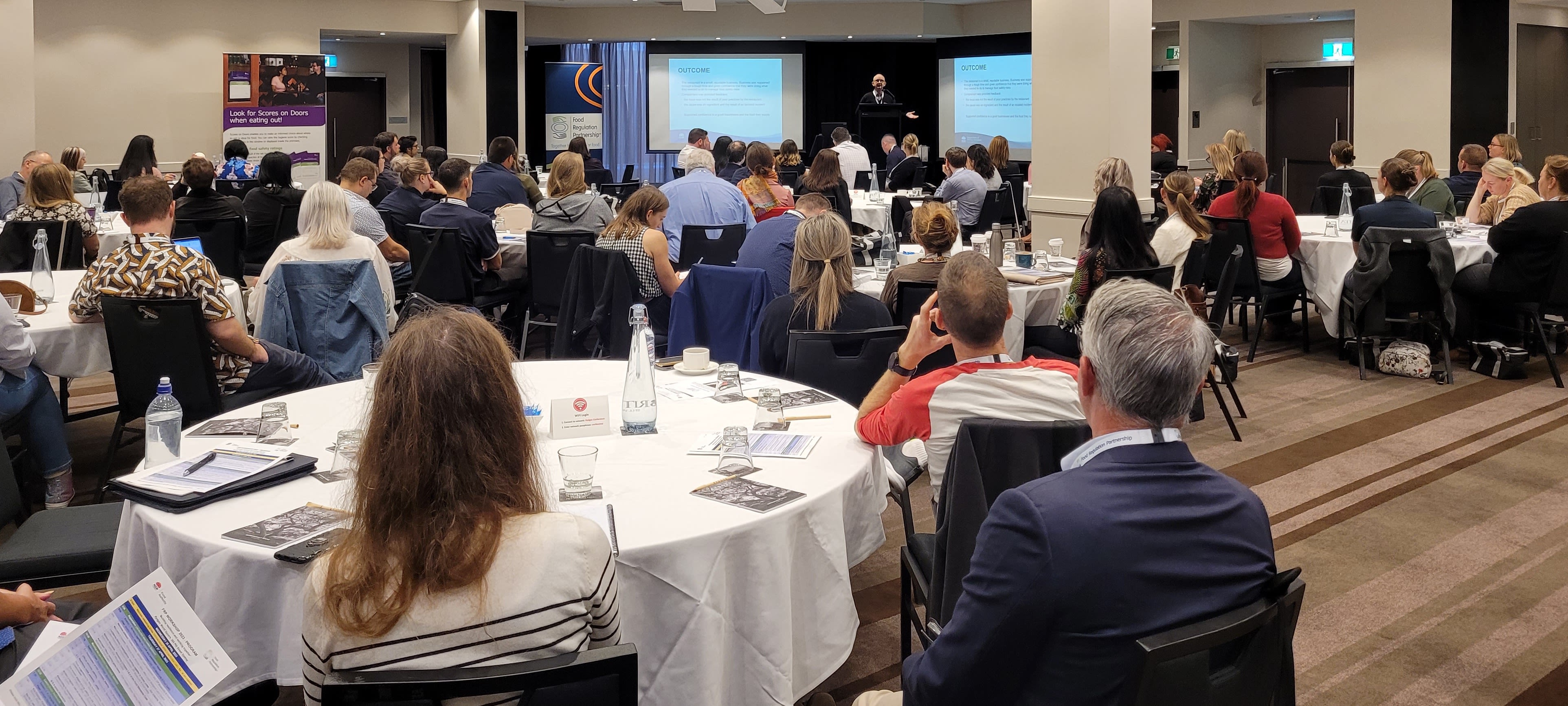
Tweed Shire Council – Retail & Food Service Information Session
NSW Food Authority’s Local Government Unit regularly works with local councils to deliver food safety information to local retail food businesses.
The importance of allergen management, cleaning and sanitising and preventing foodborne illness were key discussion points at the most recent Retail and Food Service Information Session (RIS), held in Tweed Heads recently in. The RIS was strongly supported by food retail businesses within and beyond the Tweed Shire Council, including neighbouring local government areas and their Environmental Health Officers.
Tweed Shire Council delivered an engaging presentation on ways to improve food safety in a retail business, and also discussed Councils food business and inspection outcomes, and any subsequent compliance action.
Additionally, across all RISs, attendees learned about the Food Regulation Partnership, food legislation, pest control, causes of foodborne illness and received a hands-on demonstration on cleaning, sanitising and handwashing from Food Authority staff.
The Food Authority usually holds three yearly sessions to bring together local food businesses, council EHOs and representatives from the Food Authority to learn how to create and maintain a culture of food safety within the retail food sector.
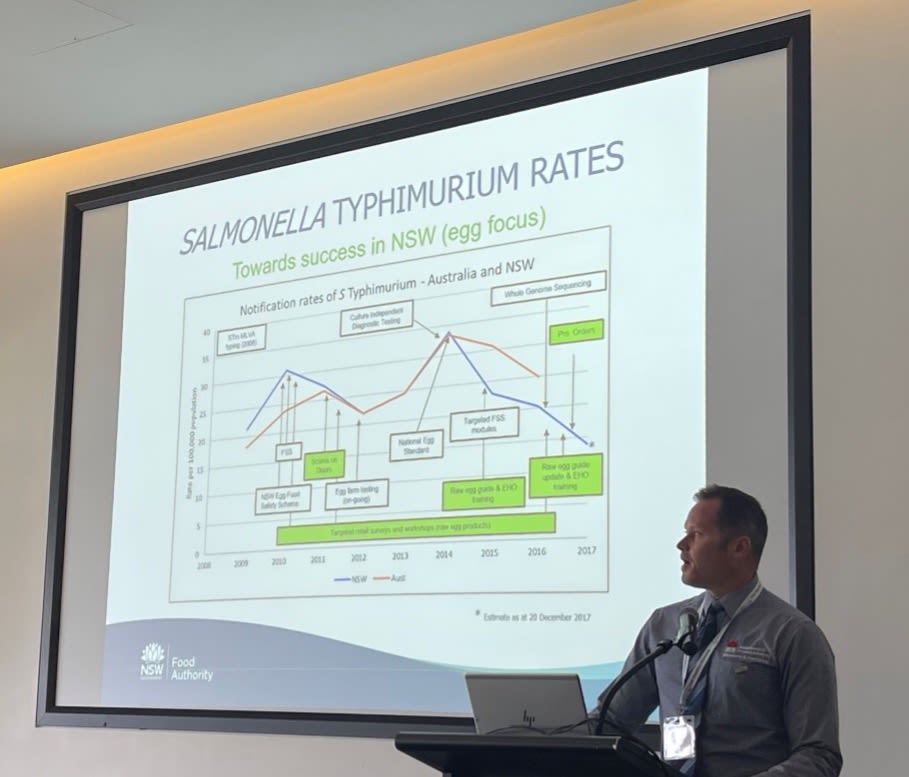
Andrew Davies, Manager Local Government Unit, discusses the downward trends of foodborne illness to local food businesses.
Andrew Davies, Manager Local Government Unit, discusses the downward trends of foodborne illness to local food businesses.
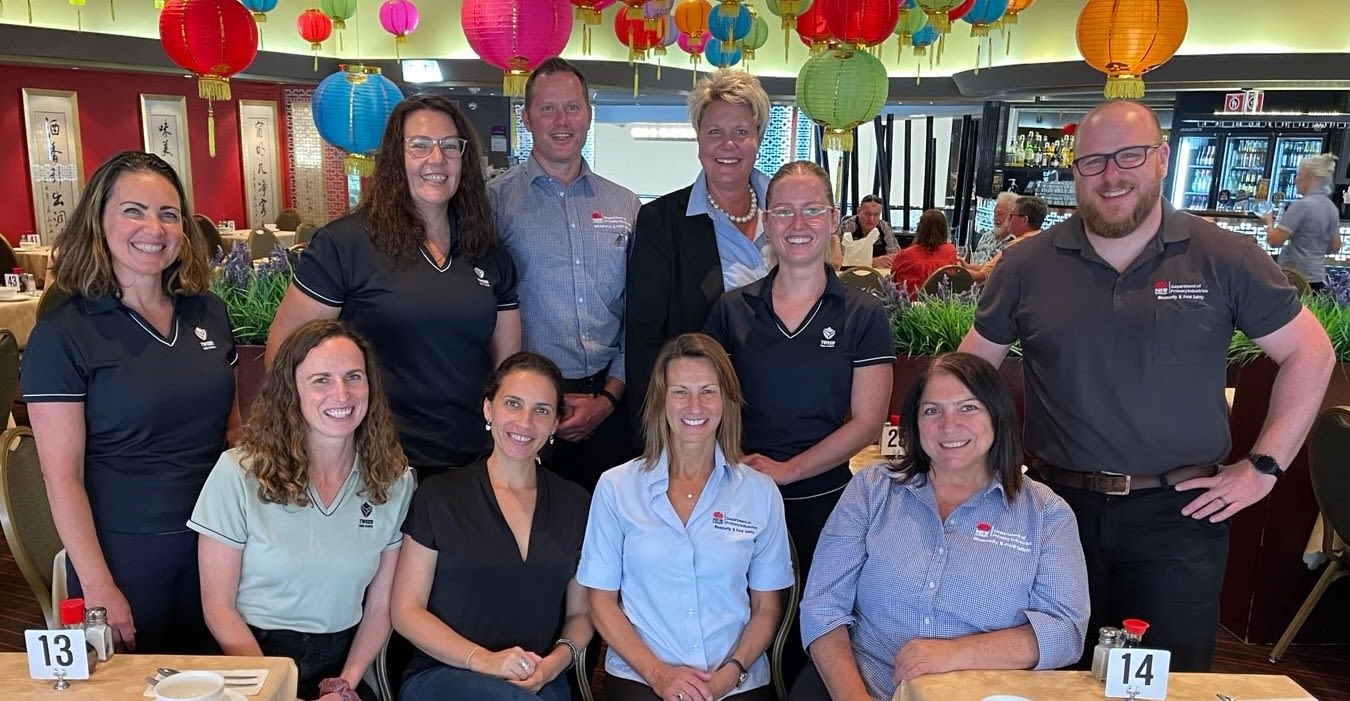
The NSW Food Authority’s Local Government Unit collaborated with the Environmental Health Team of Tweed Shire Council to deliver food safety information to food businesses in the Tweed region.
The NSW Food Authority’s Local Government Unit collaborated with the Environmental Health Team of Tweed Shire Council to deliver food safety information to food businesses in the Tweed region.
SAVE THE DATE: Retail & Food Service Information Session, Wagga Wagga
The next Retail Information Session will be in conjunction with Wagga Wagga City Council on Tuesday, 20 June 2023 at the Wagga RSL Club in Wagga Wagga, NSW.
If you’re a retail food businesses in the local council area, join Wagga Wagga City Council Environmental Health Officers and NSW Food Authority representatives to learn how to instil and strengthen a culture of food safety in your food business to keep food safe and your customers free from foodborne illness.

Combating African swine fever
Environmental Health Officers and food retailers can play an important role in preventing exotic animal diseases such as African swine fever (ASF).
Pigs can be infected with ASF by eating food scraps that contain or have been in contact with ASF contaminated meat.
Learn more about ASF through this interactive online course, developed by the Queensland Government - African swine fever prevention and early detection.
Instructions on how to access the free course are available here.
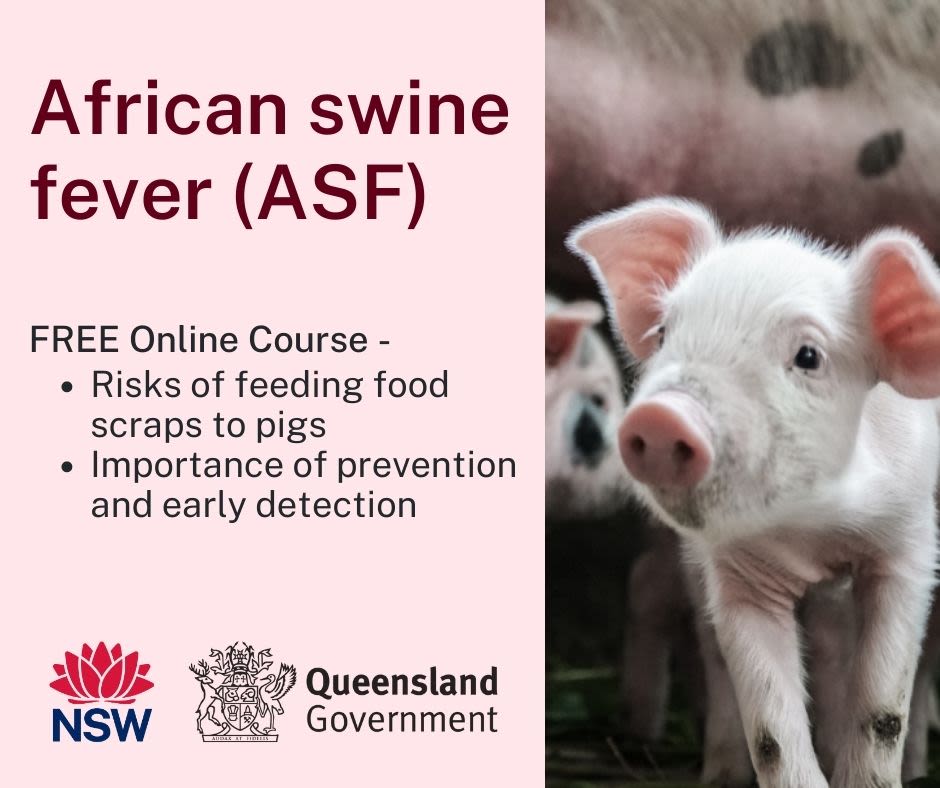
African swine fever (ASF), free online course available.
African swine fever (ASF), free online course available.
MEAT
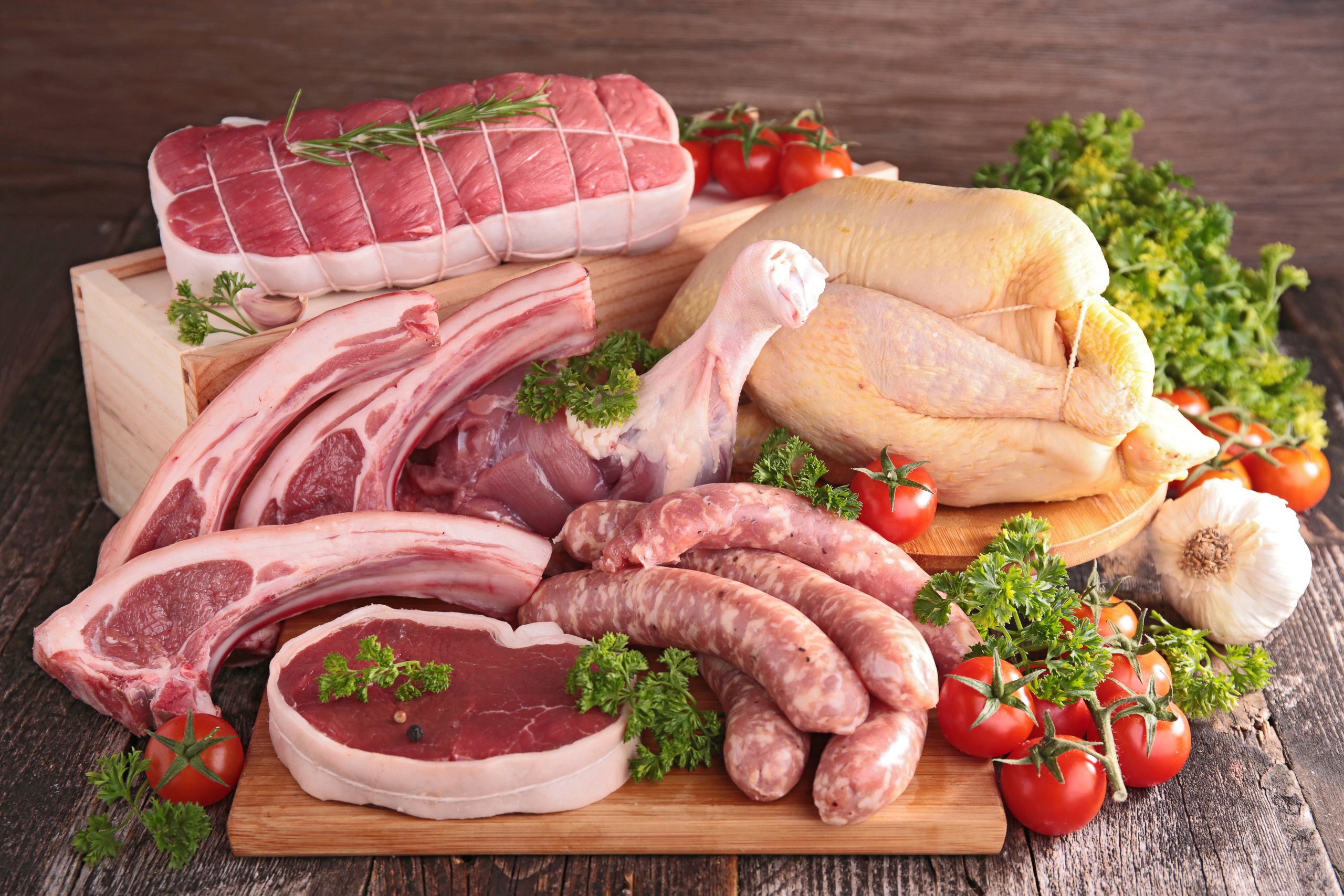
Inspections and audits
From January 2023 to March 2023, the Food Authority conducted 152 inspections and 200 audits of licensed meat businesses. This sector has seen a 2% drop in compliance, now at 90% compared to the same period in 2022. The Varroa mite emergency response impacted business-as-usual activities, and this resulted in lower audit and inspection numbers. Compliance activities in the meat industry will continue as these activities form a critical part of risk mitigation measures.
The main Corrective Action Requests (CAR’s) issued were for process control (failure to complete monitoring records or to identify cross contamination risks), food safety program issues, and analytical testing (high level of preservative use in processed meats). The Food Authority will be targeting future compliance activities within the meat retail sector to address these critical risk issues and poor performances.
The table below shows comparable data for compliance and audit activity in the meat sector between the same reporting periods in 2022 and 2023.
| Reporting period | Jan – Mar 2022 | Jan – Mar 2023 |
|---|---|---|
| Total audits | 373 | 200 |
| Total inspections | 121 | 152 |
| Compliance rate | 92% | 90% |
Meat Industry Consultative Council
The last Meat Industry Consultative Council (MICC) meeting was held on 8 March 2023.
Issues considered by the committee during the meeting included updates on:
- Meat industry compliance activities for the period July to December 2022
- Animal welfare, which included updates on:
- Animal welfare reform
- Livestock Processing Establishment Standards & Guidelines
- Poultry Standards & Guidelines
- Livestock market chain engagement - Australian Standard 4696: Hygienic Production and transportation of meat and meat products for human consumption (AS 4696)
- Staged repeal
- Biosecurity
A full summary of meeting outcomes is available here.
More information about the Meat Industry Consultative Council, including its purpose, functions, and membership can be found on the NSW Food Authority website here.
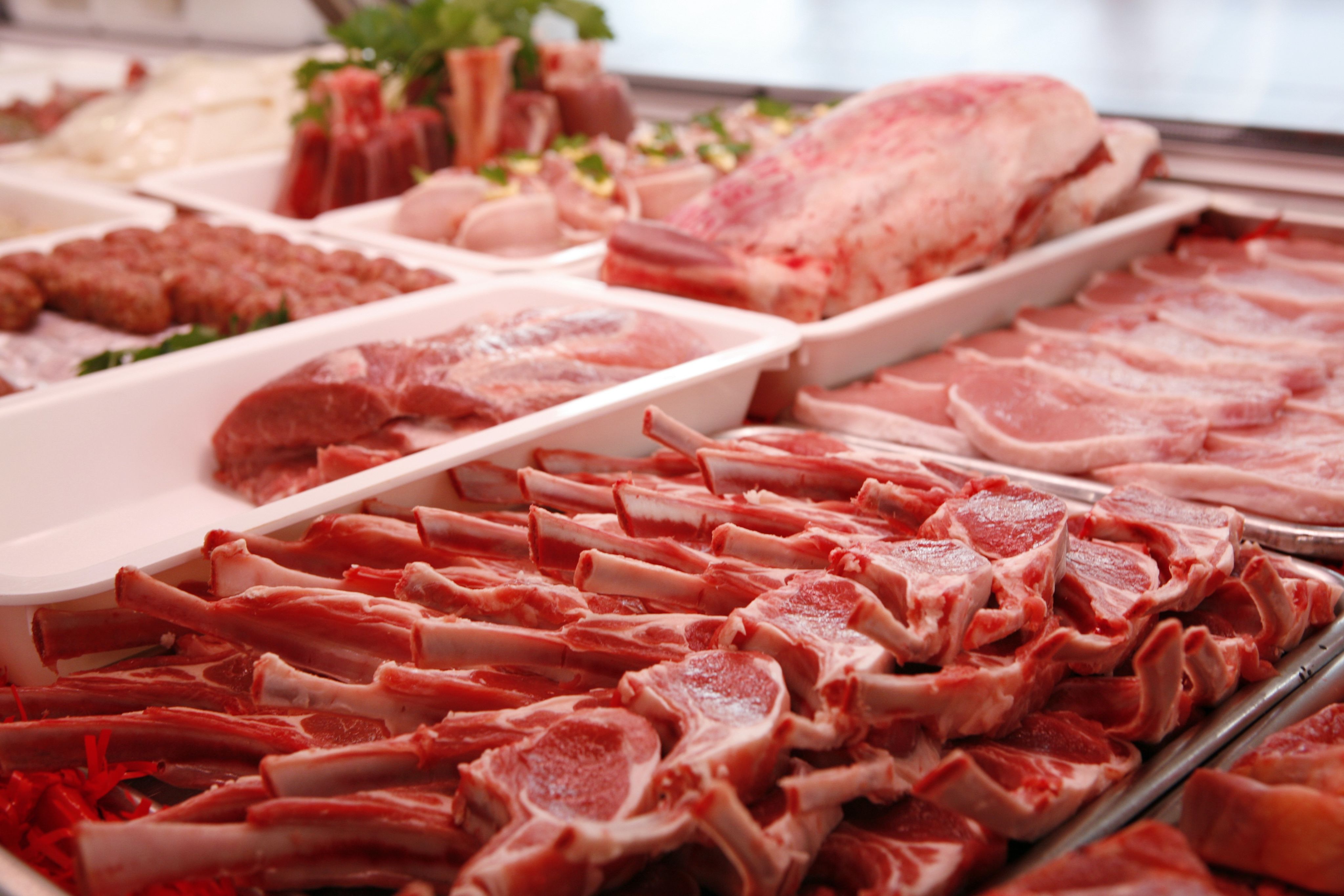
Updated Biosecurity Regulations relating to prohibited pig feed
NSW DPI has recently updated the NSW Biosecurity Regulation (2017) to align with current best practice and scientific evidence. The latest changes made under the Biosecurity Amendment (Miscellaneous) Regulation (2023) include:
Amendment to Clause 37 of the Biosecurity Regulation (2017), clarifies circumstances where it is not reasonably practicable for a person to prevent the pig from having access to prohibited pig feed. Circumstances include:
- A pig having access to a placenta of its own origin or herd mate
- A pig having access to naturally deposited faeces of wildlife, herd mates or other stock animal
- A free ranging pig having access to carcasses of herd mates or wildlife.
These changes came into effect on 17 February 2023 and are now part of the regulations.
A full explanation of the changes can be found here. If you have any questions, please contact NSW DPI Animal Biosecurity on animal.biosecurity@dpi.nsw.gov.au
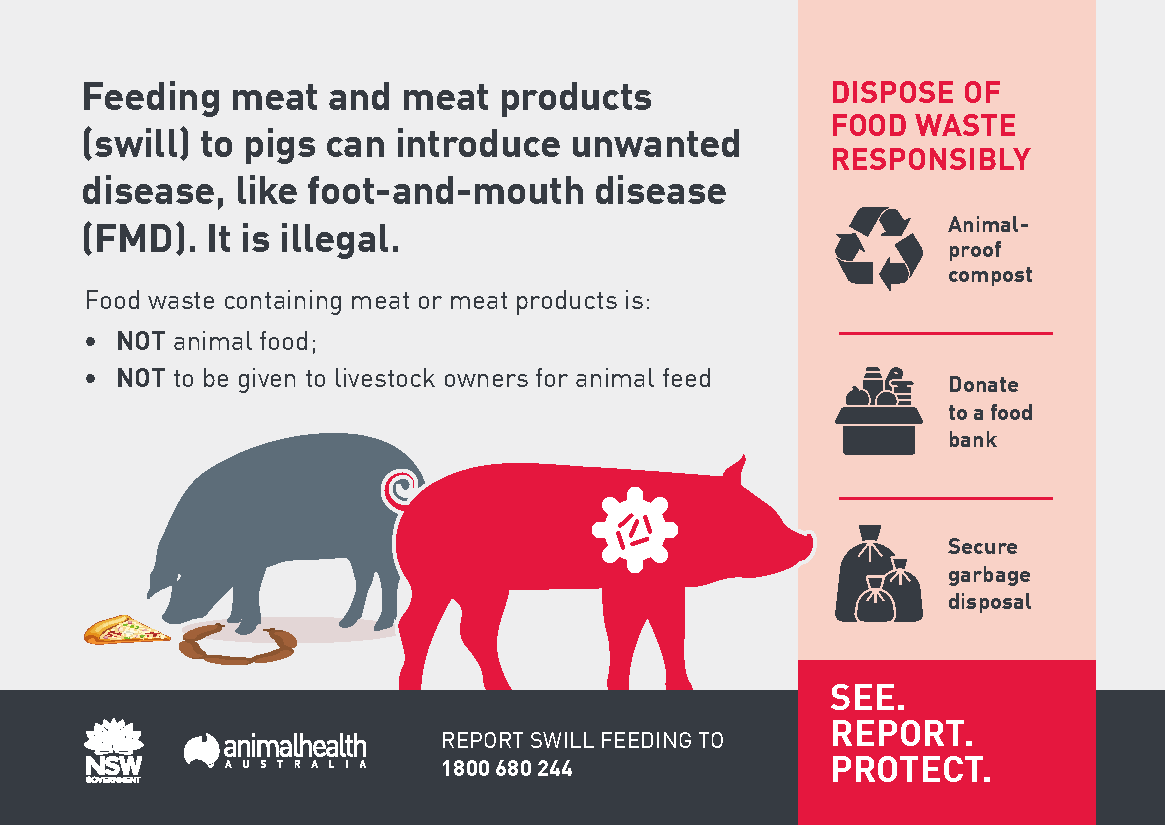
Feeding meat and meat products (swill) to pigs is illegal.
Feeding meat and meat products (swill) to pigs is illegal.
SEAFOOD
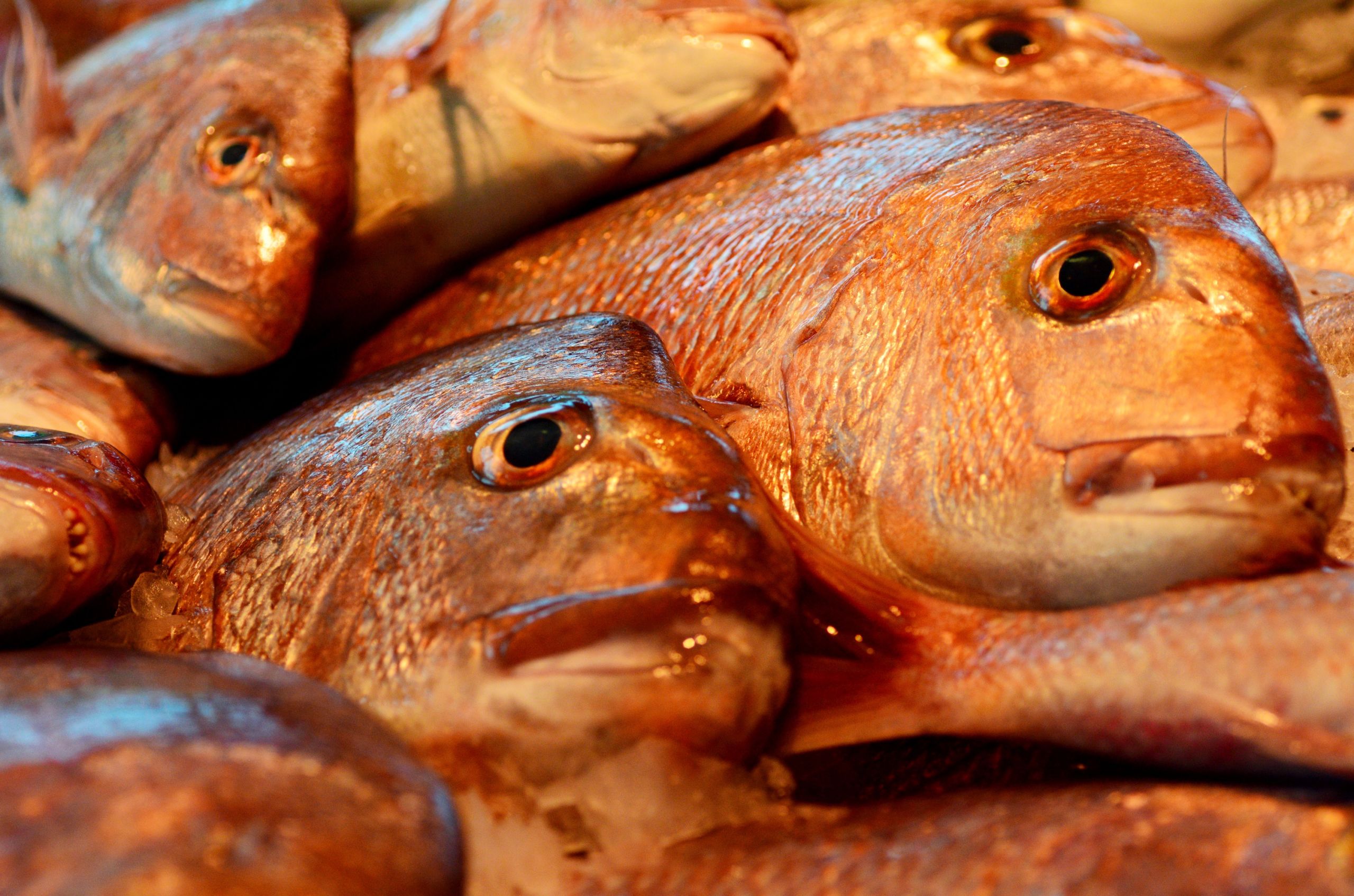
Inspections and audits
From January 2023 to March 2023, the Food Authority conducted 15 inspections and 37 audits of licensed seafood businesses. This sector has seen a 3% drop in compliance, now at 92% compared to the same period in 2022.
The main areas where critical defects have been raised at audit were for analytical testing, process control (failure to complete monitoring records), and food safety program issues.
The Food Authority moved to a risk based, outcome focused operational model, and consistent with the priority classification scheme for a seafood business (currently P2), audit frequency will remain at a 2-year cycle. Complaints, inspections, and investigations relating to seafood businesses will continue to be managed on an as needs basis.
The table below shows yearly comparable data for compliance and audit activity in the seafood sector between the same reporting periods in 2022 and 2023
| Reporting period | Jan – Mar 2022 | Jan – Mar 2023 |
|---|---|---|
| Total audits | 140 | 37 |
| Total inspections | 20 | 15 |
| Compliance rate | 95% | 92% |
Transforming Australian Shellfish Production – Project Update
The Transforming Australian Shellfish Production Project uses data from real time sensors, biological samples and molecular genetic methods to support harvest area operations in shellfish growing areas. The project is a collaboration between the Food Agility CRC, UTS, NSW DPI, NSW Farmers Association and the Western Australia Agriculture Authority, along with NSW and WA oyster farmers.
As they become available, estuary specific reports for participating estuaries are published on the Food Agility CRC website. The most recent published report for Quibray Bay harvest area in the Georges River, demonstrated that fewer harvest closures could have potentially occurred if management plans were based on real-time salinity sensor data. Modelled data from biological samples and environment variables reported that elevated bacteria in water samples were linked to rainfall and nutrient inputs.
The project has many benefits for shellfish production. Project findings have demonstrated proof of concept of the potential to use salinity-based management plans in lieu of traditional rainfall-based plans in oyster growing harvest areas. Project researchers have developed of molecular based tools can determine potential pollution sources to support catchment remediation. Real-time data can also support decisions for shellfish producers around daily farm management activities such as stock movements and future planning.
A recent cost benefit analysis (CBA), Drought & Above Average Rainfall Impacts on the Net Returns to NSW Oyster Production – Using Real-Time Sensors, by NSW DPI found a positive economic impact in three case study harvest areas (Pambula Lake, Cromartys Bay and Wapengo Front Lake). The positive annualised net benefits (profit after all operational costs including sensor installation and maintenance) in these locations were a direct result of extra harvest opportunities gained from sensor technology. This was in both drought and above average rainfall scenarios: Pambula Lake - $1,923 and $1,562 per hectare, Wapengo Front Lake - $1,416 and $1,784 per hectare, Cromartys Bay - $1,121 and $549 per hectare.
The return to farm gate value (or gross value of production) from the use of real-time sensors is on average estimated at 3 to 9 % across the three case study areas. Regional and climate variability is likely to impact the magnitude of benefit and the potential number of extra harvest days gained through using sensors across different catchments. Beyond additional harvest opportunities, the project outputs have established a range of social and environmental benefits that can enhance oyster farming businesses.
The full CBA report is available on the NSW Food Authority website here.
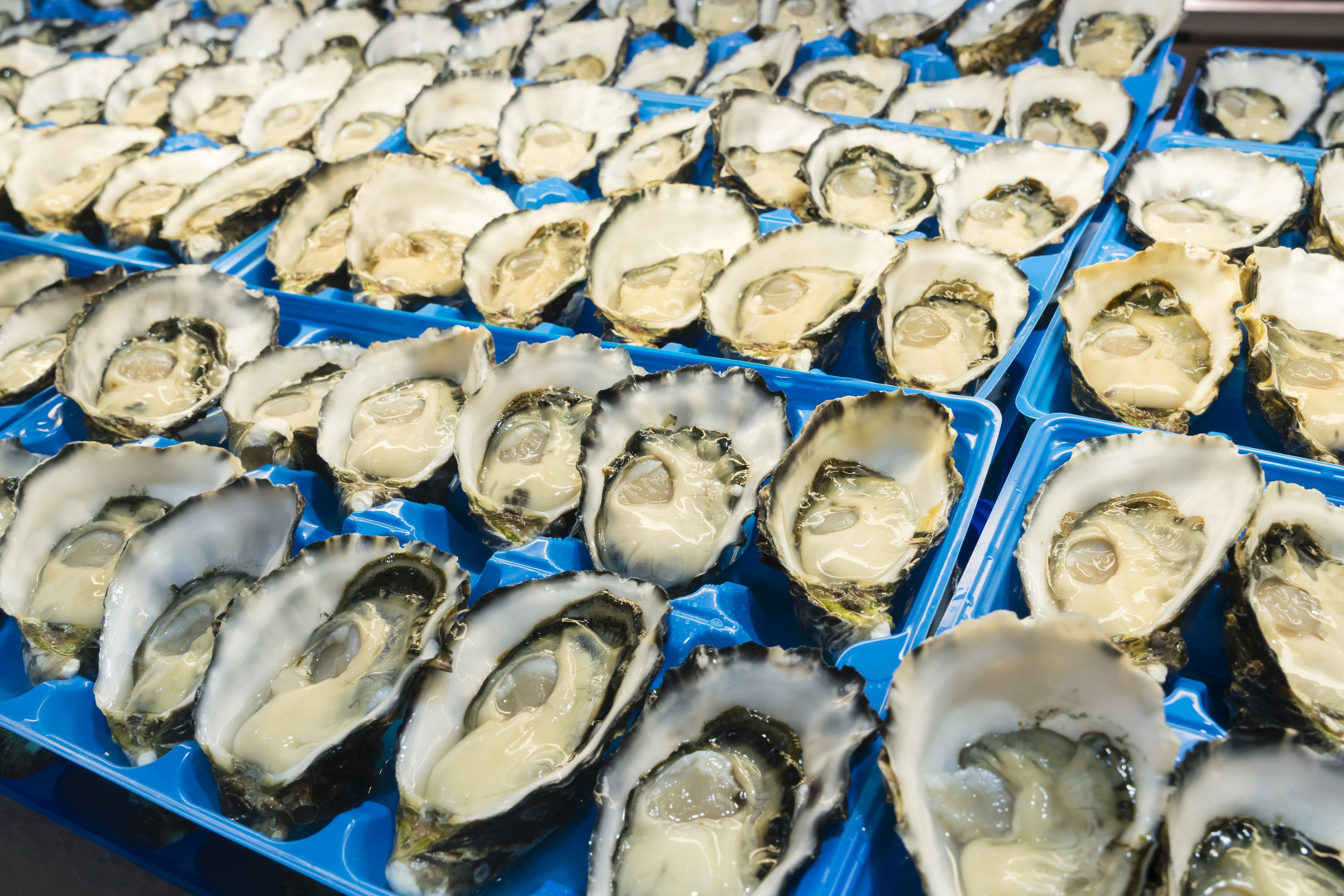
NSW Shellfish Committee
The last NSW Shellfish Committee meeting was held on 22 February 2023.
Issues considered by the committee during the meeting included updates on:
- Establishment of an Agri-Tourism sub-committee
- NSW Aquaculture Lease Bond – appropriate use
- Handover of remote sensing network
- Local Shellfish Program Levy Structure
A full summary of meeting outcomes is available here.
More information about the NSW Shellfish Committee, including its purpose, functions, and membership can be found on the NSW Food Authority website here.
The next meeting of the NSW Shellfish Committee was held on 24 May 2023, with outcomes from the meeting to be published on the website shortly.
From Catch to Customer – new food safety resources for fishers
The NSW Food Act 2003 (the Act) requires the Food Authority to consult with industry sectors affected by a regulatory Food Safety Scheme.
The Seafood Industry Forum (SIF) provides the NSW Minister for Agriculture and the NSW Food Authority with a consistent and concise forum for dealing with matters about the Seafood Safety Scheme
Through this regular engagement, members of the SIF recently expressed a need for food safety resources to assist fishers in understanding their food safety obligations under the Act.
As a result, and based on compliance data and with industry input, the following new food safety resources were recently developed:
- A miniature-sized accordion type ‘Z’-card that fishers can keep readily accessible in their wallet with the key food safety do’s and don’ts when catching, storing and delivering their catch, and
- A one-page poster reiterating these food safety messages which can be printed and provided to all fishing co-ops or fish receivers in NSW.
Additionally, the resources have been translated into Vietnamese, Indonesian, Arabic and Chinese (simplified & traditional) to cater for our licensees representing Culturally and Linguistically Diverse (CALD) backgrounds.
You can access the new Poster and Guide - From Catch to Customer, in the Seafood section of the NSW Food Authority website.
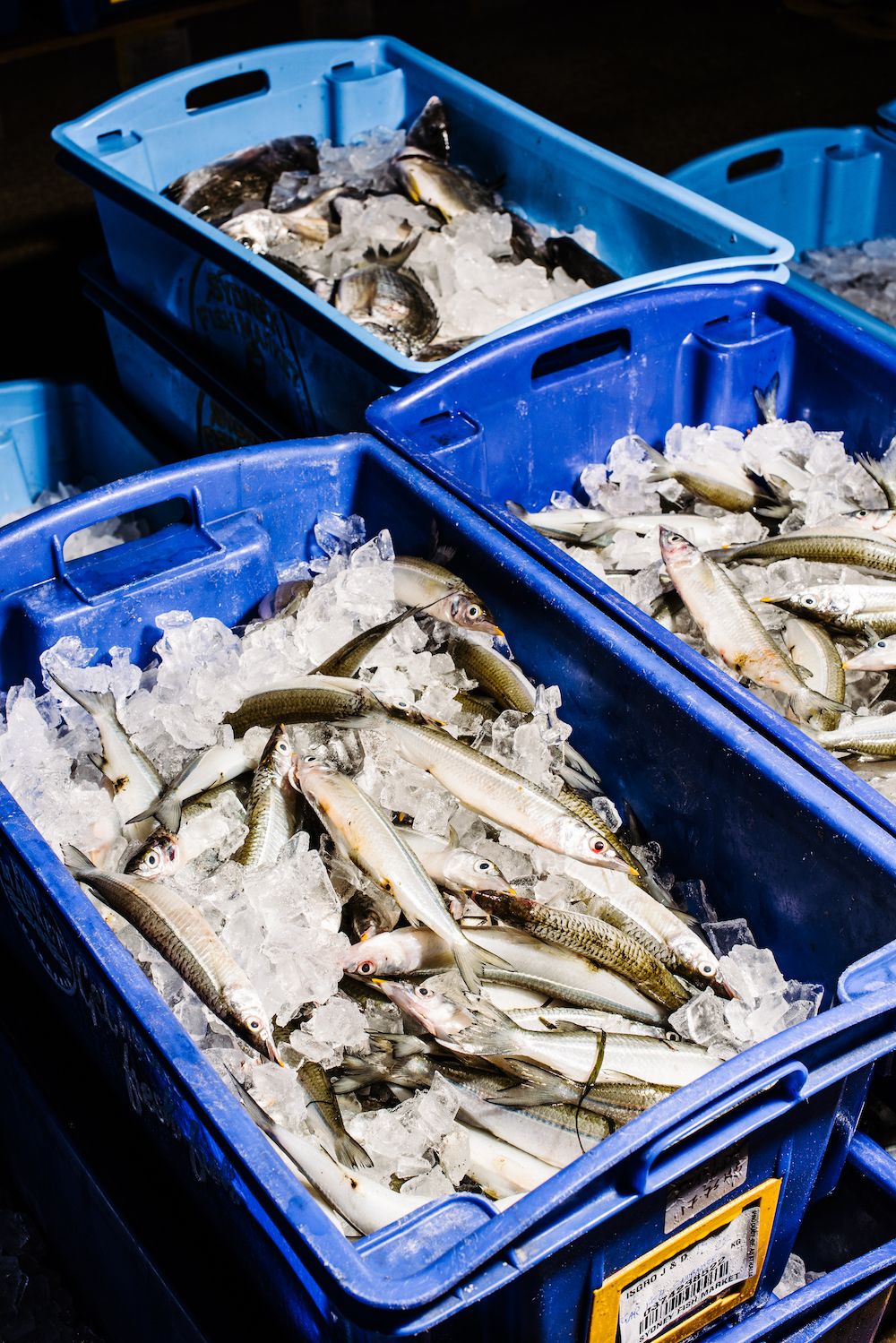
DAIRY
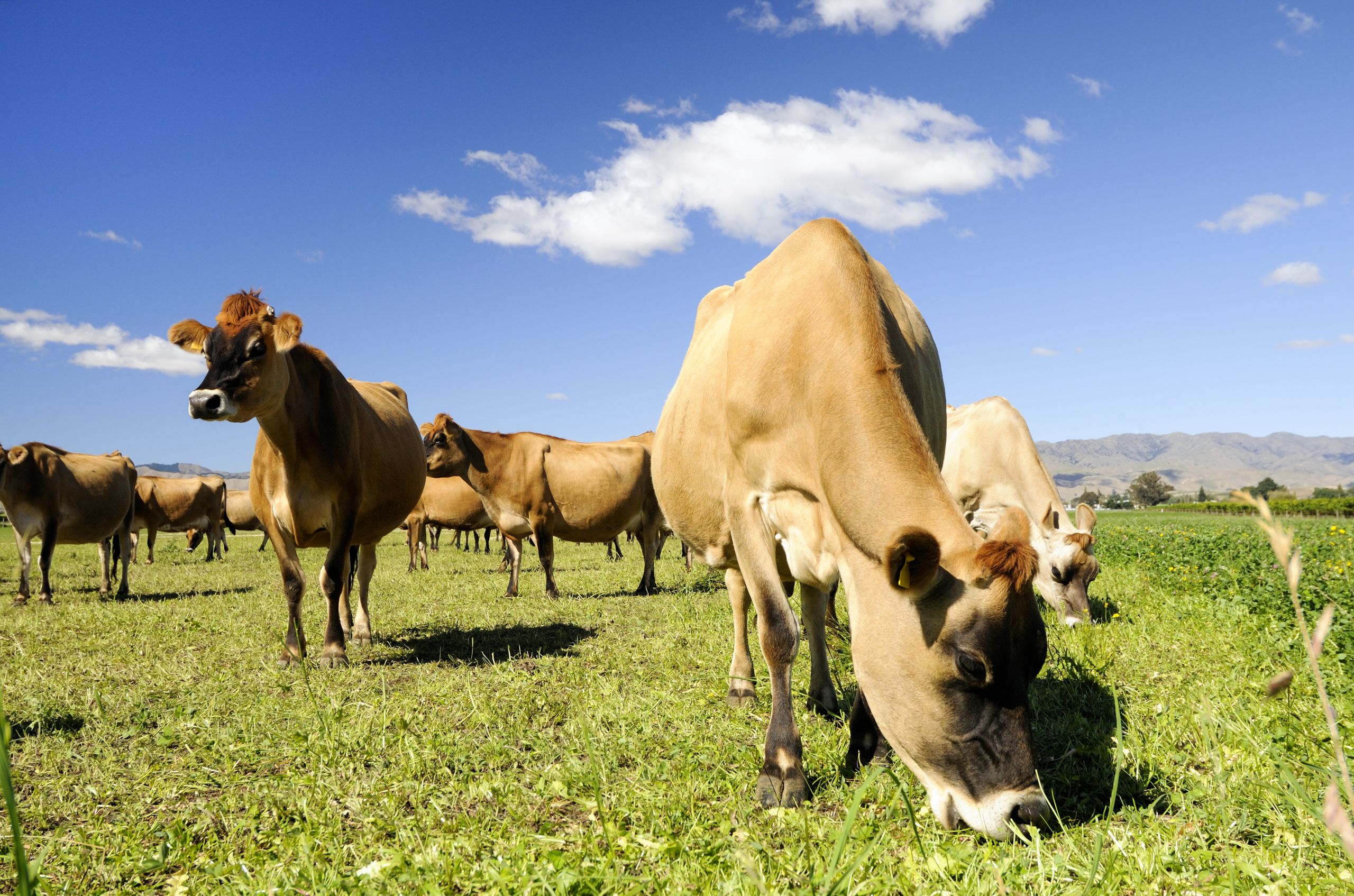
Inspections and audits
From January 2023 to March 2023, the Food Authority conducted 21 inspections and 127 audits of licensed dairy businesses. Even though the compliance across the dairy industry remains high, this sector has seen a 4% drop in compliance, now at 96% compared to the same period in 2022.
The main Corrective Action Requests (CAR’s) issued during the period were for hygiene & sanitation, food safety program, and product labelling.
The table below shows yearly comparable data for compliance and audit activity in the dairy sector between the same reporting periods in 2022 and 2023.
| Reporting period | Jan – Mar 2022 | Jan – Mar 2023 |
|---|---|---|
| Total audits | 86 | 127 |
| Total inspections | 7 | 21 |
| Compliance rate | 100% | 96% |
EGGS
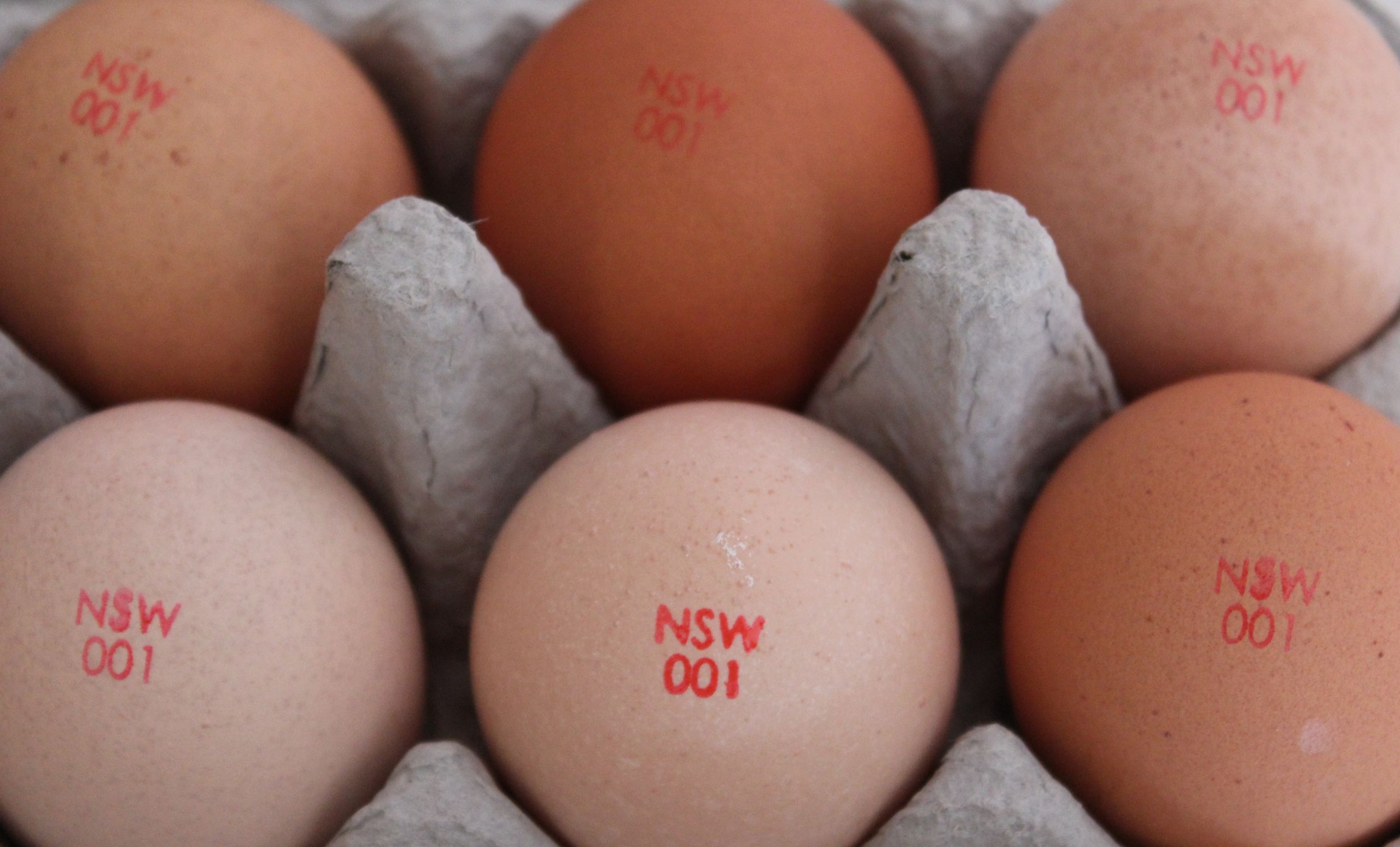
Inspections and audits
From January 2023 to March 2023, the Food Authority conducted 7 inspections and 19 audits of licensed egg businesses. Compliance across the egg industry remains high with 95% compliance during the period. The Food Authority has moved to a risk-based, outcome-focused compliance model, and consistent with the priority classification scheme for an egg business (currently P2), audit frequency will return to every 2 years. Complaints, inspections, and investigations relating to egg businesses will continue to be managed on an as needs basis.
The main areas where critical defects have been raised at audit were for process control, analytical testing, and food safety program monitoring.
The table below shows yearly comparable data for compliance and audit activity in the egg sector between the same reporting periods in 2022 and 2023.
| Reporting period | Jan – Mar 2022 | Jan – Mar 2023 |
|---|---|---|
| Total audits | 9 | 19 |
| Total inspections | 4 | 7 |
| Compliance rate | 100% | 95% |
Egg Industry Consultative Committee
The last Egg Industry Consultative Committee (EICC) meeting was held on 19 April 2023.
Issues considered by the EICC during the meeting included updates on:
- Egg industry compliance activities for the period July to December 2022
- Animal welfare, which included updates on:
- Animal welfare reform
- Livestock Processing Establishment Standards & Guidelines - Update on the staged repeal of Food Regulation 2015
A full summary of meeting outcomes is available here.
The next meeting of the EICC is scheduled for 16 August 2023.
More information about the EICC, including its purpose, functions, and membership can be found on the NSW Food Authority website here.
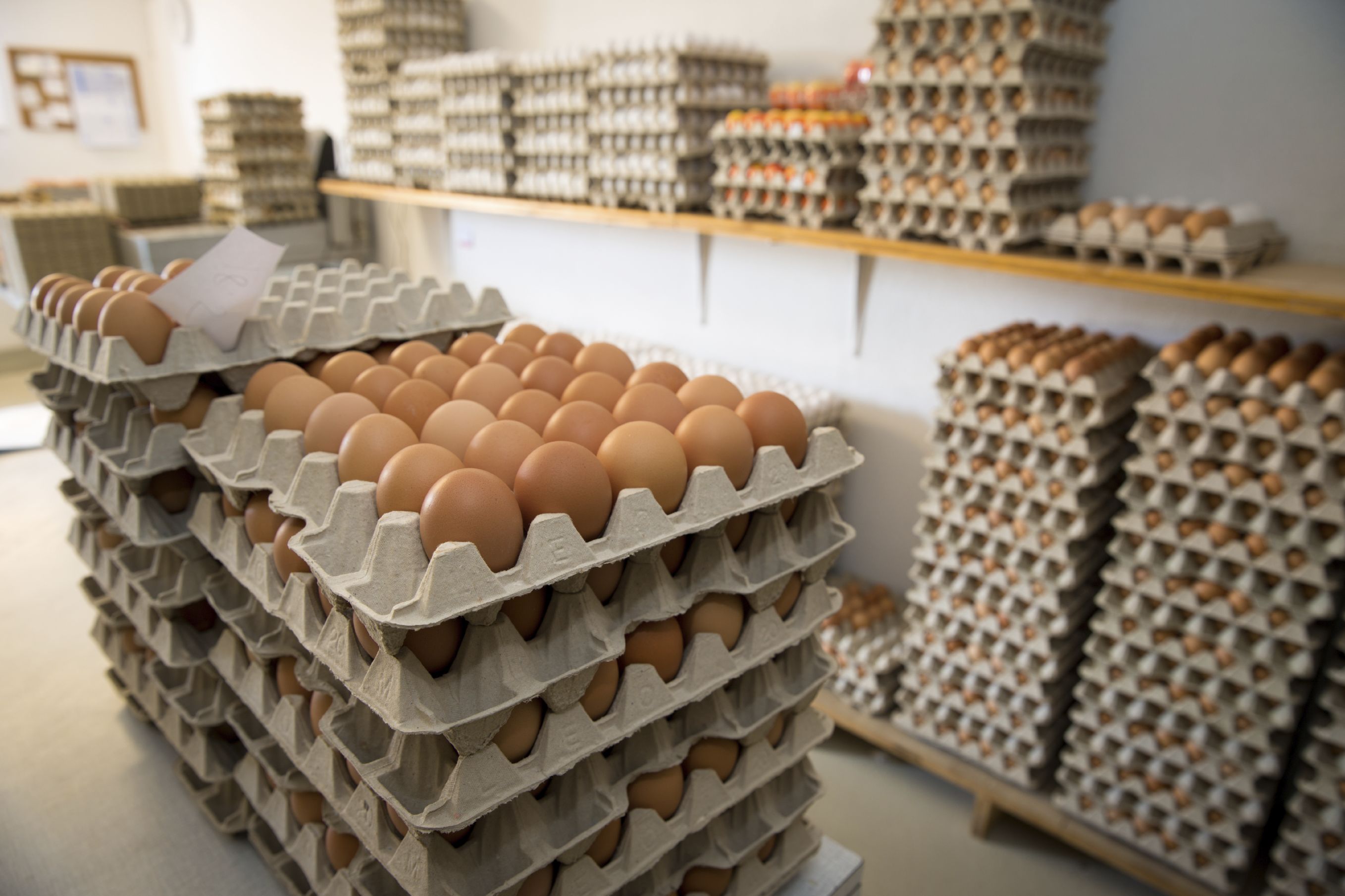
Hen Management Survey
The NSW Department of Primary Industries (DPI) is undertaking a hen management survey which aims to help DPI better understand egg farm practices and management decisions across NSW.
If you are a licensed egg producer in NSW, you may receive a phone call from a DPI staff member asking your permission to participate in the short survey.
If you have any questions about the survey or would like more information, please contact Joanna Blunden on joanna.blunden@dpi.nsw.gov.au.
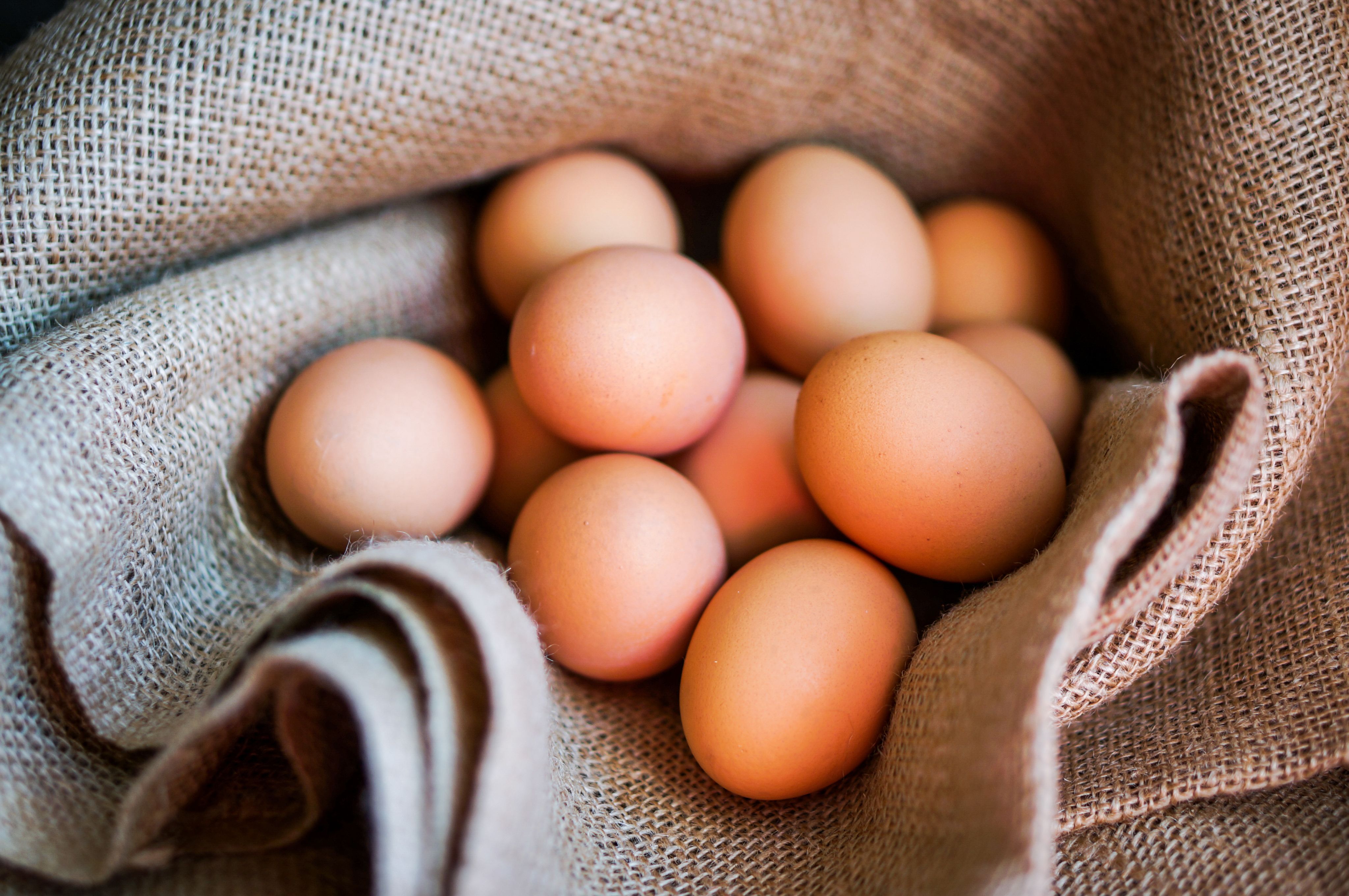
PLANTS

Inspections and audits
From January 2023 to March 2023, the Food Authority conducted 3 inspections and 15 audits of licensed plant product businesses, resulting in an improvement in compliance, up 4% to 86% overall, when compared with the same period in 2022.
The main Corrective Action Requests (CAR’s) issued were for failing to comply with process control requirements, food safety programs, and pre-requisite programs.
The table below shows yearly comparable data for compliance and audit activity in the plant sector between the same reporting periods in 2022 and 2023.
| Reporting period | Jan – Mar 2022 | Jan – Mar 2023 |
|---|---|---|
| Total audits | 16 | 15 |
| Total inspections | 1 | 3 |
| Compliance rate | 82% | 86% |
VULNERABLE PERSONS

Inspections and audits
The Food Authority conducted 5 inspections and 217 audits of licensed hospitals and aged care businesses during the period from January 2023 to March 2023. Compliance across the vulnerable persons industry remains high and achieving 99% compliance during the period.
The main Corrective Action Requests (CAR’s) issued during the period were for pre-requisite programs (failing to correctly implement calibration program) and process control (failure to complete monitoring records at the frequency required in the food safety program).
The table below shows yearly comparable data for compliance and audit activity in the vulnerable persons sector between the same reporting periods in 2022 and 2023.
| Reporting period | Jan – Mar 2022 | Jan – Mar 2023 |
|---|---|---|
| Total audits | 210 | 217 |
| Total inspections | 10 | 5 |
| Compliance rate | 99% | 99% |
manufacturing

Plain English Allergen Labelling deadline nears
The end of the transition period for businesses to implement plain English allergen declarations on food labels is drawing near.
From 25 February 2024, allergen information must be declared in a specific format and location on food labels, using plain English terms in bold font.
Any food already labelled with existing allergen declarations before the end of the transition period may be sold for a further 2 years.
The Food Authority’s Generate an allergen declaration tool can help – simply enter an ingredient to see how allergens must be displayed.
Generate an allergen declaration tool
Generate an allergen declaration tool
The Food Authority’s Generate an allergen declaration tool can help – simply enter an ingredient to see how allergens must be displayed.
Have you tried our Food Labelling Assistant?
Manufacturers must ensure food labels conform to the national Food Standards Code and provide important information to people about the food they are buying.
Our interactive online Food Labelling Assistant makes it easy, guiding businesses through the process of what to include and how.
It details each step, from adding ingredients, declaring allergens, and date markings, to storage and use directions, and more.
It now also assists with identifying the percentage of characterising ingredients, which are typically mentioned in the name of the food.
PROCESSES
FSANZ invites written submissions on the following:
- Proposal P1028– Infant Formula: To revise and clarify standards relating to infant formula products comprising category definitions, composition, labelling and representation of products.
Submissions on this application are due by 6pm (Canberra time) 7 July 2023.
- Application A1266 – Endo-1,4-beta-xylanase from GM Trichoderma reesei (gene donor: Fusarium verticillioides) as a processing aid: To permit the use of endo-1,4-beta-xylanase sourced from a genetically-modified strain of Trichoderma reesei containing the endo-1,4-beta-xylanase gene from Fusarium verticillioides as a processing aid in starch processing and the production of potable alcohol. To read the call for submissions report click here .
Submissions on this application are due by 6pm (Canberra time) 10 July 2023.
For information on how to make a submission, visit the FSANZ website.
*Reproduced from FSANZ website
CALENDAR ITEMS
- Retail Information Session Tuesday 20 June (Wagga Wagga)
- AIFST23 Convention - 24-25 July (Melbourne)
- Fresh Produce Safety Conference 2023 - Thursday 10 August (Sydney)
NEW & UPDATED RESOURCES
INDUSTRY
Food Safety Guidelines for the Preparation of Raw and Lightly Cooked Egg Products - updated
Seafood substitution in restaurants and takeaways - updated
Food Labelling Assistant % labelling feature - new
Generate an allergen declaration - new
From Catch to Customer Resources – poster and guides (includes translations) - new
Standard 3.2.2A Updated Resources - new
GENERAL
- Managing food allergen risk - new
- The temperature danger zone – updated (fact sheet)
- Keep foods separate – updated (fact sheet)
- Food Safety During Pregnancy – updated
SELF-SUBSCRIBE
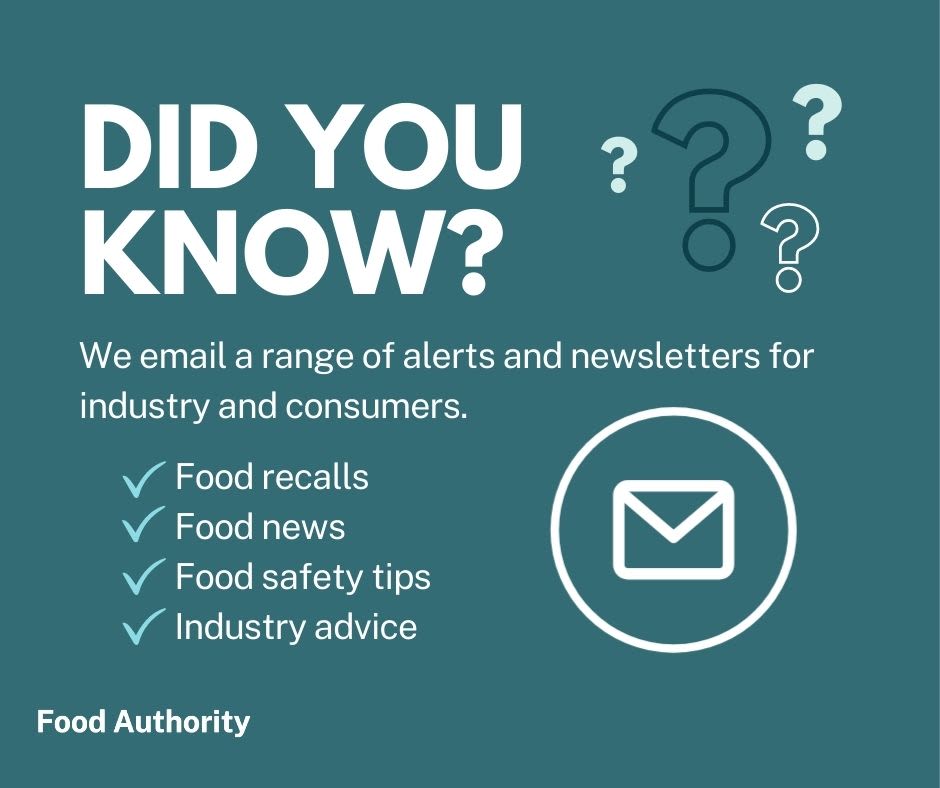
Have you subscribed to our food safety updates?
Don’t miss a thing! Sign up for our custom email alerts and tips to stay informed on topics that interest you.




